#>Africa
Explore tagged Tumblr posts
Text
Laurels
(Acacius x F!Sex Worker Reader)


Pairing(s): Acacius x F!Reader; Acacius x Lucilla
Rating: Explicit; 18+ MDNI
Word Count: 13.5k
Summary: You met him as a young soldier, brought to the brothel you worked at to celebrate a victory. Now, almost two decades later, his return to Rome in triumph sparks memories of your time together - and the secrets you still hold.
Content Notes/Warnings: Explicit, 18+ MDNI - Sex worker F!Reader; no physical description of Reader except that she is curvy and has hair (but this can be taken as a wig, as was common in imperial Rome); spans events of Gladiator and parts of the sequel; canon-compliant but no spoilers for Gladiator II; we love and respect Lucilla in this house; Acacius is a lover boy; period-typical derogatory terms for sex workers; oral sex (M and F receiving); PiV sex; mutual masturbation; discussion of pregnancy; forbidden love; secret marriage; discussion of death and grief; implied character death; implied that Reader is more sexually experienced than Acacius when they meet; references to alcohol consumption; some uses of strong language
Author Note: I've been thinking about and sketching out this story since I first laid eyes on Acacius in those promotional pictures released during the summer, but wanted to wait until I'd had a chance to see Gladiator II three times before writing it up properly, to avoid any issues with characterisation. I hope you all enjoy it.
I've referred to him as Acacius throughout, as that's what Lucilla and everyone else calls him and because we have no goddamned idea what he's actually called. (I've used certain tags, though, to make sure people see this. Hopefully. Maybe.)
There are some Latin/Roman terms used throughout: lena is the madam or brothel keeper; cella is the part of a temple dedicated to a specific deity; meretrix is a Roman term for a prostitute; mercatus is a market or shopping area.
The cover image is entirely based on authentic Roman mosaics and interiors: top left is a 1st century CE mosaic; bottom right is a 4th century CE mosaic from Sicily of a sex worker with her client; and background is the interior decor of a bedroom in Pompeii.
Dividers by @saradika-graphics.
Enormous thanks to @mescalpascal for beta reading this story.
Follow my writing blog @ladameecrit and turn on notifications to stay up to date with my work.

The city has resonated to the sound of his name these past weeks. A hero of empire, of conquest; the perfect role model for Rome’s young boys, already being prepared from birth for war and glory.
Or, more truthfully, for death.
Today he returns to the city in glory, to be honoured with a triumph in recognition of his role in conquering the far-off lands of Northern Africa. The crowds are already thronging the streets, trying to secure their perfect vantage point to catch a glimpse of the victor en route to be crowned with laurels.
No one notices an ordinary woman in middle age, simply but elegantly dressed in her best clothes for the occasion, discreetly slipping up the steps and onto the balcony of a tavern overlooking the triumphal route. No one pays a woman like that any mind, especially not on a day like today.
You quietly secure your spot and slip down your veil, patting your hair to ensure the style is still in place. Why, exactly, did you go to such effort, knowing you’d be at such a distance from him? Knowing how many years it has been?
You take the cheap little metal effigy you’d purchased from a street hawker from your purse, gently rubbing your thumb over the crude rendering of his handsome face.
You told him he would go far. You told him he would be feted like this, one day, all those years ago. You smiled as you imagined meeting him again, showing him the tiny metal version of himself.
“See? I told you you’d be cast in bronze, didn’t I?”
A ripple of excitement courses through the crowd and it becomes apparent that the procession is near. They cheer and chant his name in unison. A mixture of excitement and fear grips you. Why had you done your hair just so, put on your best jewellery from your meagre selection?
Just in case. In case his dark eyes found yours, again, and bridged the years with a glance.
The rumble of chariot wheels and horses’ hooves becomes more intense, the cheering of the crowd more frenzied. You grip the ledge of the balcony in nervous anticipation, the golden metal of your favourite ring glinting in the light.
For a moment, it feels like being frozen in time. He is a god among men, the bright sun reflecting beautifully off the white and gold of his special, ceremonial armour as he receives the acclamations of the crowd. He’s uncomfortable, you can tell: that nervous wave and unsettled expression giving him away. This is not his natural environment, though you suspect he has had to get used to it since he assumed his command and since his marriage.
You are unable to make a sound as his chariot approaches, overwhelmed by the sight of him, the sound of the crowd, the way he is received and acclaimed with more enthusiasm than any emperor you can remember. He is still beautiful . From here, you can see the streaks of grey that frame his handsome face now, making him even more distinguished than you remembered. His tanned skin only serves to make the white and gold armour gleam all the more. His beard, neatly trimmed, is more grey than dark these days, lending him an air of absolute authority.
But you know that behind the guise of the conquering general, battle-scarred and triumphant, lies another man: strong but gentle, intelligent and kind, a man who likes to laugh and to joke and to love .
She is a lucky woman, you muse.
He’s almost directly in front of you now, and you can see in those soft, dark eyes the brave young man you knew so well, once upon a time.
His gaze shifts. He finds you.
His expression changes to one of surprise and… joy ?
The moment lasts barely a second before he has passed by in the relentless journey to his apotheosis. But you are left with his name on your lips, whispered like a prayer as your mind travels back through the years to the time you first met.
“Acacius.”
***
War is shit. But it’s good for business when your business is your body.
When you left your rural home for Rome as a teenager, accompanied by the man you were promised to, selling yourself was not part of the plan. But there’s little a girl can do, when her betrothed reveals himself to be a liar and a crook. He left you alone, without resource or recourse, when he was stabbed to death over an unpaid gambling debt.
You had certainly landed on your feet, all things considered, and with the benefit of a few years’ hindsight. The lena who ran the place was kind and understanding, the other girls bright and friendly, for the most part, and the brothel itself marketed as a cut above the usual fare for the average legionary, brought to the imperial city after a stint killing Gauls or Goths or whoever the enemy was that week.
Besides, it was even fun , sometimes. You, with your curves and ample bosom, earned a reputation for kindness and understanding. Sometimes you wondered just how many nervous young men had learned how to please a woman from a night or two in your arms.
The night you met, the lena had gathered the free girls together in an excitable cluster, hissing about the arrival at the brothel of a group of young legionaries from various parts of the Empire.
“Some of them are absolutely gorgeous , girls! And they’ve had a recent victory - you know what that means.”
Catalina, who never lacked confidence, grinned. “It means big bonuses.”
The lena beamed. “Exactly. Big bonuses, big tippers… and who knows, maybe big in other ways?” The girls roared with laughter as she clapped her hands. “Alright, neaten up! Best behaviour, now. And as usual with the legions, you’re theirs for the night.”
You picked up a goblet of wine, and you and your fellow whores struck your usual enticing poses.
“Heroes of Rome…my finest girls, for your delectation.”
***
His eyes find yours through the slew of pairings, dark as pitch but warm as fire in the low light of the brothel’s main antechamber. He is, as your lena had suggested, gorgeous : young, beautifully handsome features, clean-shaven; the strong nose and fine jaw universally considered the epitome of male beauty, wavy dark hair curling around his brow in his neat, regulation haircut.
And then he smiles at you. And you are lost, entirely, in the way his eyes sparkle and his open, kind face beams.
The beautiful boy would surely choose one of the more beautiful girls, as was always the way. But instead he strides through the melee, broad shoulders cutting a path with ease, and stands in front of you, a soft, nervous smile on his face.
“Hello, soldier. Where are you from?”
His eyes are warm . He seems kind. You feel a wave of lust coursing through you: if he wants you, you thought, you might really enjoy this one.
“Hispania,” he answers. “But we were fighting tribes in Germania.”
His voice, like warm honey, sends a throb through your core.
“And you have been rewarded with a trip to the imperial city! You must have been really brave.”
He chuckles, a half-smile on his handsome, tanned face. “I tried to be.”
His nerves are apparent in the way he carries himself, in the little glances he gives you, seeking approval. You take his hand, thumb stroking his palm gently.
“Do you want to let me reward you tonight, soldier?”
He nods enthusiastically. “Please.” He gives your hand a little squeeze. “But tell me your name, won’t you? I would like to know your name.”
You tell him with a smile. “And yours?”
His grin is warm and genuine. “Acacius.”
***
The yellow glow of the oil lamps illuminate the murals that decorate the walls of your chamber, and throw shadows from the fabrics draped over the low couch and bed. Acacius looks around, unsure where to sit, and you gesture to the couch.
“Wine, soldier?”
“Yes, wine. Please. Thank you.”
Goblets in hand, you join him and lean slightly towards him. It is impossible to miss the way Acacius’s eyes focus on your breasts, barely covered in the diaphanous folds of your pale, loose robe.
“Do you like what you see?”
His gaze trails upwards to your eyes, and he nods: seriously, with absolute conviction.
“Do you want to see more?”
Another serious nod. You slip out of the dress for him, letting the thin, pleated fabric loosen around you until you are revealed, naked and soft, for his hungry eyes.
One strong arm wraps around your waist while the other fondles handfuls of your tits. He holds you there, mouth finding your nipples, sucking and licking them until they are pert and pebbled and glossy with his saliva.
In that instant, you close your eyes, daring to imagine that this was not a transaction but real : that the gorgeous young man worshipping at your bosom is your lover, all yours , helping himself to every inch of you before he takes you.
“What do you like , soldier? What do you want me to do to you?” You move to your knees before him, putting your hands on his strong, tanned thighs and lightly slipping your fingers under the hem of his short tunica .
He hesitates, breath hitching, eyes wide as he takes in the sight of you between his legs. This isn’t his first time, you suspect, but something tells you Acacius may not be as practiced as some of his comrades in the art of love. The thought of showing him, guiding him, sends a thrill through you.
Your hands undo his undergarment and find his cock. He stammers, trying to find his words to respond.
“Would you like my mouth, hmmm?”
He nods, eyes trained on you, mouth open as you lick your lips and wrap them around the head of his cock. You move slowly, expertly; one hand holding him in place while the other caresses his balls, the way you know men like.
It’s not that you were forced into the profession, not like some of the girls sold into it - though Juno knows, you’d have preferred another line of work. But there, in the lamp-lit room with this big, handsome, polite young soldier falling apart at your skilled touch? It’s a fucking joy .
He whines and gasps as you vary the speed and movement, tongue flicking over his tip before you swallow him back down again. Acacius’s broad hand holds the back of your head as you move faster, taking him deeper. You feel his balls tighten as he falls back on the low couch, moaning and grunting with pleasure.
“I’m…oh fuck , I’m close, I’m….”
He comes in your mouth with a cry, head thrown back on the couch and beads of sweat glistening along his neck, broad chest rising and falling rapidly as he catches his breath.
A discreet spit and wipe and you tuck your naked curves against his spent body, fingertips slipping under the collar of his tunic to trace the line of his shoulders, the hollow of his throat.
He blinks his ebony-dark eyes open, apologetic. “I’m sorry. I didn’t mean to…” His exposed cock still glistens with your saliva and his come. “I didn’t mean to finish so quickly. I’m…I’m still dressed .” He grins, you giggle, and both of you burst out laughing.
“No need to apologise, soldier. We have plenty of time, time enough to go again, surely. I’ll help.” You rise from the couch and gesture for him to follow you to the bed.
“First things first - tunic off .”
You survey him now, naked, from your position on the bed. His body is taut and lean; too lean, perhaps, for his broad shoulders and long limbs. A few scars and bruises on his torso testify to his experiences in combat.
“Join me, won’t you?”
He settles close to your own naked form and his eyes move to your tits, pressed against the warm skin of his arm. You reach for his hand and bring the broad, calloused palm and fingertips to cup your breast.
You never forgot the fascination he seemed to have with your body. That first night, he traces the curve of your tits carefully with his fingers, playing a little with your nipples, pinching just enough to make you gasp, cupping and squeezing the soft flesh before caressing every bit of you in turn. The softness of your belly, the meat of your thick thighs and ass, the line of your hips, the flesh of your arms and neck.
Perhaps, you think, it has been a long time since he’s been with someone. Properly, that is. Perhaps his previous encounters were a more rushed affair, skirts hitched up to fuck hastily against a wall or a tree.
Now he can take his time with you. Wetness pools between your legs, anticipating him. You bring his hand to your pussy, guiding him to the little nub of pleasure hidden in your folds as you ride his fingers.
“You feel that?” He nods, transfixed by the way your hips roll against him, the way you pant and moan as you get closer and closer to your peak. “Find this sweet spot on a woman, and she’s all yours.”
He’s getting hard again, you notice, and starts to work you more quickly with his thick fingers. He looks to you for approval, warm eyes round and earnest, and you praise him with breathless words before coming undone on his hand.
“ Gods , that was very good, soldier.” A few strokes of your hand to his cock, and you know he’s ready. “Your turn, now.”
Acacius shifts his broad body on top of yours, using one knee to push you open a little further for him. As he breaches your pussy for the first time, he leans forward and kisses you: slow, soft, tongue slipping between your lips as you hitch your knees up and wrap your arms around his neck.
The young Spaniard fucks you deep and slow, his plush lips brushing against yours as his kisses mingle with both of your grunts and moans of pleasure. Such a display of tenderness is unusual here, where most men have one thing and one thing only on their minds as soon as they enter your chamber.
There have been plenty of young soldiers, plenty of officers, plenty of Rome’s heroes in your arms, in your mouth, in your cunt. Some handsome. Most not. Some respectful. Most rough.
Acacius is…different. You couldn’t explain it, not back then. Not yet. But you know in that instant, as he moves inside you and you look into his dark eyes, that there is something special about this man.
***
He comes to you every second or third night for the remainder of his furlough in the city, to the point that the lena begins to refer to Acacius as “your soldier”. You, privately, miss him on those nights that he does not visit.
He brings you gifts: wine, flowers, little cakes and sweets wrapped in pretty cloth. “You’ll have spent all your coin,” you chide him as you sit together on the couch, drinking wine and feeding each other the treats. “What will you say, if someone asks about the money you earned on campaign?”
Acacius leans in and plots a course of kisses down your neck, culminating at the fastening of your robe on your shoulder. He unpins the brooch and watches the fabric fall with a smile.
“I will say that it was money very well spent.”
***
The lena ’s knock on your chamber door is unusually early that day - not yet noon, you estimate, as you hastily finish pinning your hair and stand to receive her.
She smiles wryly as she leans against the doorframe. “You have a visitor .”
“This early?”
“Might I remind you that I determine the opening times of this house? Yes, this early, but…he wants to take you out .” She throws up her hands in response to your confused expression. “I know, I know, but you’re paid for! Put on something respectable, I doubt he wants you to look like a whore in public.”
You dress suitably, and fix your cloak around you before emerging into the large antechamber normally reserved for meeting clients. This morning, it is silent and empty, save for a lone figure standing with his back to you in the centre of the airy room.
He was a little broader, now, than he’d been the last time you saw him, eight or nine months ago. His arms and legs had grown more muscular, his garments evidently more expensive than the simple woollen tunic and cloak he wore the first time you met.
“Acacius?”
He wheels around and that familiar smile greets you like a beam of warm spring sunlight after the long winter. After a close embrace and a kiss, he stands back to take you in.
“How have you become more beautiful since the last time I saw you?”
You shake your head and laugh, cupping his face in your hands and rubbing your thumbs against the bristling scruff he now wears. “And you seem even more handsome and dashing, soldier. You look like the emperor now, too, with this beard.”
Acacius blushes bashfully. “Perhaps…in truth, it was my commander that inspired it, as he favours a beard too.” He smiles and winks conspiratorially. “But then maybe he wishes to resemble Aurelius, no?”
With a smile you lead him back into the main hall of the brothel and towards the door that opens onto the street. “The lena tells me you wish to take me with you into the city today.”
He offers a little bow in confirmation. “I do. I would like to walk with you, away from these four walls.” A glance over his shoulder in the direction of the lena sitting at her desk, whose all-seeing, eagle-eyed gaze bores into the two of you. He speaks a little louder, for her benefit. “And I have promised to bring you back.”
He gives you his hand, you open the door, and together you step into the bustle of the imperial city.
***
“Am I correct in thinking that isn’t a native Roman accent?”
You nod, looking at Acacius from under your lashes. “It is not. I am a country girl by birth, from a farm in the north.”
He smiles with satisfaction. “I have an ear for accents. Hard not to, when you fight for an empire as vast as ours. How did you end up here, then?”
It is as if he is speaking to a… normal woman, not a whore. You swallow hard, looking at the ground as you compose yourself to answer, not wanting to sully your relationship with this man with the painful memories of the past.
“I…was promised to a man, and he brought me to Rome. But he lied, and he cheated, and he died over an unpaid debt, and I…”
Acacius holds you in his kind, concerned gaze as your words trail off. Enough , you muse to yourself, I have said enough .
“And you…had to stand on your own two feet.” He gives your hand a reassuring squeeze that feels as comforting, somehow, as if it were his warm embrace.
In the mercatus adjoining the new forum, he buys little cups of wine and a jar of olives for you to share as you walk together through the packed marketplace and public squares. The tall column honouring the victories of the emperor Trajan casts its long shadow on the gleaming marble pavements below.
“Perhaps some day they will build a monument to you,” you suggest, a wry smile on your lips. “A great bronze, to the great warrior Acacius.”
He raises his eyebrows in astonishment and laughs. “A monument to an ordinary centurion? I don’t think so, somehow. Now, a statue of my commander , on the other hand, would be entirely more likely and more fitting.”
“You admire him, don’t you?”
Acacius sips his wine and nods. “He is the greatest of commanders and the bravest of men. Kind, too, away from the battlefield. I… I would die for that man.” He turns to you and grins, excited. “Have I told you that he is from Hispania, too? He tells me sometimes that we’re the finest fighters in the empire.”
You give an impressed little coo. “Have I seen this great man? Perhaps he was with the rest of you, that first night…the night we met.”
“He was not.” He takes an olive from the little clay jar, a wistful look on his face. “General Maximus has a family - a wife, a little boy - and such love he has for them as I’ve never seen. He is the emperor’s most loyal general, but in truth he would give anything to return home to them, for good.”
The two of you fall silent for a few moments, each lost in your own thoughts. You study his handsome features as you walk together: his strong, proud nose, now marked with a fresh, livid scar; his fine brow, knitted in thought; the line of his pink mouth, framed by his dark beard.
“Is that something you would like, too - a wife, a family?”
He nods and smiles as he meets your gaze. “It is something I would like very much indeed.”
***
You think of him, worry for him, miss him in the long months of campaigning in far-flung corners of the empire. Without realising, you have become part of an invisible sisterhood: yet another daughter of Rome who goes about her business and makes her living, but whose heart and mind march, always, with “her” soldier. For the first time, you really see the careworn women carrying offerings and lighting candles at the little street shrines or in the temples, muttering prayers to Juno for the safe return of a husband, a lover, a brother, a son.
You try to listen daily for updates from the newsreaders in the public fora, steeling yourself for news of a defeat. Even your work provides opportunities to stay abreast of the progress of the northern legions, as you hone your small talk with clients to focus on questions of war. Though other men might have your body for a short time, your soul is always and only with him , longing for the day he’ll be in your arms again.
He’s gone longer, this time. In your lonelier moments you wonder if perhaps he has met someone else, someone with whom he can have the family life he dreams of.
He is not yours , you remind yourself as you make up your face for another night’s work. He can never be yours .
A commotion coming from the direction of the entrance hall startles you: strong, confident footsteps on the marble floor; the lena ’s voice calling angrily after someone; and suddenly, a knock on your chamber door.
“My sweet, beautiful lady.”
Acacius sweeps you into his strong arms before you have finished opening the door properly, pulling you tight to him and covering your face with kisses as you wrap your arms around his neck and giggle with joy and relief at the sight of him.
“Your soldier hasn’t paid, girl!”
The lena ’s irritation is obvious even from the other end of the hall, her arms folded and jaw set. You break Acacius’s embrace and reach for his hand to guide him into the room.
“He’ll pay, don’t worry,” you call out to her down the hallway. “He’s been away fighting for a long time and he deserves his reward, one can hardly blame the man for being impatient!”
He’s waiting for you as soon as you close the door, cloak discarded and body poised to pin you against the wall as he holds your face in his hands and leans in for a long, slow kiss. He drops one hand and you feel your garment being lifted as his thick fingers make their way between your thighs.
“Gods, I missed you. I’m so sorry I was away for so long.” He sucks on the delicate skin of your neck as you whine with pleasure, his fingertips finding the little nub of your pussy, just like you taught him. “Did you miss me, my love?”
“Mmm, I… oh, Acacius !” First one, then two fingers slip inside you, and you struggle to form a coherent thought. “I missed you, so very much, so much.”
He fucks you with his fingers there against the wall, the sound of your wetness both lewd and erotic as it mingles with your pants and little moans. He’s still in uniform , you realise, wrapping your arm around his leather-clad torso as you pull him tighter to you. Gods, he really couldn’t wait to see you.
“I need to have you here, now,” he hisses in your ear as you edge closer to your peak. “Need to be inside you, feel you again.”
He withdraws his hand and turns you to face the wall, bending your body forward a little and caressing your ass appreciatively. The head of his cock presses against your entrance, opening and stretching you as he slides smoothly into your cunt with a low groan.
“As good as you remember?” You turn to give him a sly look as he starts to fuck you, deep and hard.
“ Better ,” he hisses. A broad hand reaches for your breast while the other grips the meat of your hip, holding you in place. “Been thinking about this, about you …every day, every night …”
His beard bristles against your skin as he angles his lips against your neck and shoulder, sucking and kissing and nipping at you. He’ll leave marks, you know that, and you know you shouldn’t let him, not in your line of work. But instead you just twine your fingers through his dark curls and keep him there, revelling in the sensation as you start to fall apart for him.
Acacius mutters praise and filth into your ear in equal measure: how beautiful you are, how good you feel, how tight your cunt is, how well you take him. The fastenings and metal ornaments of his uniform press into your flesh as he fucks you harder and faster against the wall.
You shouldn’t have let him leave marks on you. And you definitely shouldn’t let him finish inside you. But, more than anything else, you want him to make you his, really and truly, inside and out. As his rhythm starts to falter, a slight arch of your back and an extra tilt of your hips sends him even deeper and makes him come. His groans of ecstatic pleasure as he fills you with his seed are music to your ears.
***
You bathe together in the brothel’s small, steamy bathhouse, your fingers tracing the scars and bruises his strong, solid body had acquired since the last time you were together. Acacius hums with pleasure as you wash his hair and rub perfumed oil into his skin, pressing your lips gently to every mark and freckle.
“I love you, you know.”
Strange, how this impressive warrior could become so vulnerable as he says the words: eyes wide, expression open and hopeful, as he reaches for your hand and kisses your palm with tender reverence.
“I love you, too.”
***
Dawn breaks over the city and the early morning light reaches through your small, high window. The night was sleepless and perfect: lovemaking punctuated by conversation, by fruits and wine, and culminating in your two bodies wrapped naked around each other in your bed.
Acacius kisses you awake, smiling as your eyes blink sleepily open.
“My love is tired, I think.”
You arch an eyebrow and smirk suggestively. “Gods, I wonder why ?”
As you cuddle against his broad chest, you spy a leather coin purse resting on the table beside the bed. The sight pierces your soft, loving cocoon like an arrow to the heart.
He pays for you.
Before you can second-guess yourself, you speak. “You don’t have to pay any more. Unless you would rather continue to buy me…”
His expression shifts from confusion to concern. “What do you mean?”
“You pay for me, but you love me and I love you and…It was different before, but now I think our love shouldn’t be bought .”
Acacius smiles and pulls you to him, kissing your forehead. “I know, my love. And I agree, but… Don’t you think your lena would be suspicious, if I stopped paying?”
“She only gets a cut, either way.” A thought occurs to you. “Perhaps we just give her the cut she’d get anyway, for appearances’ sake? And I’ll tell her you gave the rest to me directly.”
He nods, reaching for you again and holding you close against him.
“Perhaps you won’t need to worry about the lena at all, any more.”
It’s your turn to be confused as you pull back a little and look in his eyes.
“I was going to ask you anyway, I’ve been thinking about this all the time I was away… I wonder, would you be - would you consider being - my wife?”
“I could pay off any debt you owe to the lena, to this place.” He hastens to reassure you, seeing the look of shock on your face. “And I have money enough to buy us a beautiful home, some land… I have been promoted again, since I saw you last, and now we have some time together until the next campaign, we…we could marry, be together. Husband and wife. What do you say?”
Your heart says yes. Yes. Forever and always, yes , thank Juno and all the gods that brought this beautiful man to you.
But hearts don’t make the rules in Rome.
You kiss him gently, twine your fingers through his, caress the dark curls that frame his handsome face. “I would give anything to be your wife.”
He smiles sadly. “But?”
“We can’t . Even if I left this world behind for good, I still wouldn’t be allowed to marry, and -”
“I have known men whose wives were once meretrices , it’s not always so strict,” Acacius interjects.
“Were these men imperial officers with a bright future ahead of them?” you ask, as kindly as you can. “At best, I could be a mistress.”
He frowns and shakes his head. “I don’t have to be an officer forever. I don’t want to do this forever, to wage war forever. So I’ll give it up, find another occupation, use my savings…I just want you , my love.”
His thumb wipes away the tears glistening on your face as you fight the sob rising in your throat. “I want you too, I love you too, but…you are under oath, under contract, are you not? They would come after you if you broke it, I would rather die than see you hurt on my account.”
Those beautiful dark eyes are resigned now, full of pain and all too aware that there is no way for this dream to become a reality. Acacius puts his arms around you and holds you tight to his chest, silently kissing the top of your head.
When he leaves you a couple of hours later, to attend to business elsewhere in the city, you turn over and weep, sure that you will never see him again.
***
Catalina knocks on your chamber door a couple of days later, anxiously looking around her, as if afraid she might be seen.
“I don’t think there’s a rule against visiting each other in our rooms, you know.”
“Can’t be too careful, now, can we?” She lowers her voice and beckons for you to come closer. “I’ve been given a message for you. From your soldier boy.”
You move quickly to sit on the couch, afraid that your legs might give way. “He…he came to you ?”
Catalina laughs a little too loudly, and claps her hand to her mouth. “No, he did not - sent one of the other legionaries to me, just so he could get word to you. Well, not just that, we did have a good time, me and young Sextus…” A knowing smile spreads across her face.
“The message . What was the message?”
She snaps out of her reverie and sits beside you. “Tomorrow, noon. The big temple on the Capitoline, at Juno’s cella .”
You nod, taking in the information and already plotting your excuse for the lena . “Catalina, why didn’t he come directly to me?”
“Apparently he was afraid you wouldn’t see him. He’s got it bad for you, according to his pal.” She turns and pulls you into a warm hug, leaning in to whisper in your ear. “Good luck. I’ll make an offering for you.”
***
He’s already there when you arrive, standing at the entrance to the main cella and dressed simply but beautifully in a tunic, belt, and dark green cloak that only serves to emphasise his strong, broad build. You cross the marble floor to join him and he immediately reaches for your hand.
“I am so glad to see you, my love.”
You smile and squeeze his hand. “But why here?”
“I wanted to talk to you, and I needed courage - so I have made some offerings to the goddess.” Acacius nods towards the doors that lead to the cella of Juno, where priests busied themselves with candles, incense, and laying worshippers’ offerings on the goddess’s altar. “I hope she looks favourably upon me.”
“And me,” you add, and he grins. “Come, tell me. What is it that is so important?”
He leads you away from the cella and guides you through the throngs of people making their way to the great temple until you reach a quieter spot under a small portico.
“I meant what I asked you. I want to marry you, more than anything. I know, too, that the rules of this empire won’t allow it.” He takes both of your hands in his. “But I wondered if we could make our own rules.”
“Our own rules?”
He reaches into the leather purse hanging from his belt, and produces a small gold ring set with a polished garnet stone.
“If we cannot marry by law, then perhaps we might marry in spirit.” He places the ring in your palm, wrapping his hand around yours.
The bustle of the city fades far into the distance. In that moment, it is just you and him.
“You wish this, even though I cannot tend your home, be a real wife to you? In spite of my… work ?”
Acacius nods, hand still cupped around yours. “You will be a real wife, in all the ways that matter to me. And in time I will find a way for us to make a home together.” He looks into your eyes and smiles that hopeful smile you love so much. “And, perhaps, to raise our children there.”
“My work, Acacius. I would still be doing…what I do, at least until then. This does not concern you?”
He shakes his head. “It is a profession, it is not you, no matter what the law says. You do not mind that I fight and kill for a living, this is no different.”
You laugh and shake your head. “I don’t mind, but you are fighting for Rome , for an empire, not…selling yourself.”
“It is a profession .” Acacius reassures you, kissing you on the cheek. “And it is not forever.” He holds up the ring to you again.
Your smile and nod is his cue to slip the gold band onto your finger, leaning in for a deep kiss as he pulls you tight to him and whispers in your ear.
“I am yours .”
A passing temple worshipper tuts loudly at the public display of affection, and you giggle.
“And by Juno, I am all yours.”
***
The wedding feast, such as it is, is wine and sweetmeats purchased from a street vendor and consumed, picnic-style, in a quiet, secluded grove of trees near the river. He spreads his cloak on the ground, helps you down, and lays out the food before toasting you with the cup of wine he pours from a wineskin.
“You deserve a far greater feast than this, beloved.”
“This is already far more than I could ever have hoped for, my love.” You lean in and kiss him gently. “I only wish I could be a wife to you in the eyes of the law, too.”
Acacius shakes his head and strokes your cheek. “You are all I need, just as you are. Hang the law; I will find a way for us to live as man and wife. I promise.”
The dappled sunlight catches the garnet of your ring and you hold your hand up, delighted.
“It pleases you?”
“Very, very much.” You rest your head on his shoulder, both content in the quiet. Such pleasure, you think, to be here, with him - your husband , in spirit if not in law - away from the brothel, from the noise and the lena ’s eagle eye.
His hand drifts gently down your bare arm and along the line of your thigh as his lips find yours again. At your ankle, his thick fingers slip under the hem of your dress, hitching it up as his palm caresses your calf, your knee, and starts to plot a course towards your pussy.
“In public , husband?”
Acacius sighs happily at the word, encouraging you to lie back on the cloak as he moves himself between your open thighs. “There’s no one around, wife .” The bristle of his beard scratches at your neck as he nips and sucks at you, fingers already parting the lips of your cunt. “Aren’t couples supposed to consummate their marriage?”
You chuckle and writhe under his broad body as he pushes one, then two fingers into you. “Arguably we consummated this some time ago, my love,” you hiss, reaching under his tunic to undo the undergarment and stroke his cock. He whines with pleasure and fucks you a little faster as his thumb traces tight circles over that most sensitive, intimate place, smiling as you buck against him.
“What did you tell me, that first night? Find this sweet spot and she’ll be all mine?”
“All yours.” Gods , you’re close. “And I am…I am all yours.”
You come almost as soon as his thick cock pushes inside you, unable to contain the cries of pleasure. You give no thought or care to the possibility of being discovered here, of a passerby witnessing your lovemaking.
Let them see , you muse, as he fucks you hard and deep, fondling your tits through the fabric of your garment. Let them see how he takes me, fills me; how a man makes love to his new wife.
***
He comes to you every night, then, maintaining the fiction of a transactional relationship by having you give the lena her dues directly. She raised an eyebrow sceptically when you first explained the situation, but money is money, and if she suspects anything she does not let on.
In your chamber, you can almost pretend you are a normal couple. You dine together, bathe together, talk together. As he recounts his experiences with his legion, you realise the extent of his unassuming heroism and his nobility. Unlike many of the other soldiers you have encountered in this work, Acacius has a real sense of the human cost of war, of the humanity involved, whether Roman or barbarian.
“It is no wonder General Maximus has sought to promote you, my love,” you tell him one evening as you pour him another goblet of wine. “You are clearly a great leader, as well as a great fighter.”
“He has trained me well.” He sips his wine and looks bashfully at the floor. “He does not seek to waste good men like some of the other commanders; he knows the value of their lives. And we look up to him, admire him, for that.”
Your private connubial bliss must, of course, play second fiddle to the demands of the empire. One night, he arrives with a dejected air, explaining sorrowfully and apologetically that his legion is returning to the northern campaign immediately - far sooner than he had anticipated.
“I thought we had more time, my love. I am so sorry.”
You smile, shake your head, and kiss him. “We will have plenty of time to come.”
That night, the last night together before fate would make her intervention and change the course of your lives, Acacius is content simply to wrap his arms around you and hold you close to him as he sleeps.
***
The emperor is dead, and the city mourns. In the public squares and fora the newsreaders proclaim that Marcus Aurelius, philosopher-emperor, has died on campaign with the armies of the north, and succession passed to his heir, Commodus.
The armies of the north . Your thoughts turn, as they so often do, to Acacius. His commander was close to the old emperor, you remember, and the heir had a rather more difficult reputation. You walk back to the brothel and imagine your love, clad in the fur-trimmed woollen cloak worn on campaign in the north, willing your love and strength to him across the many miles.
Emperors come and emperors go, but life goes on. A months-long series of gladiatorial games is announced, to mark the death of Aurelius and the accession of his son. The lena cheers when she hears the news, knowing that the attendant surge in visitors to the city means a boost for her business.
You keep abreast of political and military developments, as usual, via the more informed and talkative of your clients. Severus, a senior aide to one of Rome’s senators, is always happy to oblige.
“Quite the news from the north,” he says one evening, as you help him unwrap his heavy outer toga.
“Is that so?” Your heart is pounding in your chest, and you steady yourself on the table before pouring him a goblet of wine. “Sit, tell me.”
“A traitor general , if you’ll credit it!” He sips the wine and shakes his head in astonishment. “Cursed the new emperor, took off and left his men. They think he went south, to his homeland. A Spaniard, you know.”
Your breath catches.
“Do you - do you know the name?”
Severus chews the inside of his cheek momentarily. “Marcus? No, that’s not it, it’s…Maximus. Maximus Decimus Meridius. One of Aurelius’s best men, they say, but off he went, revealed as a traitor.”
He puts a hand on your thigh and leans in to kiss your neck, ignorant of the stunned, horrified look on your face as you try to process this information. He does not seem to notice or care that you barely react. You move into position on the bed unthinkingly, letting him strip you and bend you over so that he can fuck you the way he likes.
You barely hear his grunts and moans, barely feel it when he pulls out and spills his come on your back. He says something to you before he leaves, but his words are a discordant buzz. Curled up on your bed, your mind races into the small hours until you drift into a fitful sleep.
***
The weeks pass, the games begin, and the blood of men and beasts stains the sandy ground of the Colosseum day after day. The new emperor, out for blood and driven mad with power, seems to want to undo the work of his father with each passing day, starting by crippling the senate.
Information about the fate of Maximus’s legions is scant and often contradictory. Some say that a new commander has been appointed and that the campaign continues, as usual. Others tell of a mutiny in the ranks, of infighting and chaos. Still more swear that the legions will come south and unite in Rome.
“He’ll come and find you, I know he will,” Catalina whispers to you as she passes in the hallway one morning. “Don’t give up. He’ll come.”
The not knowing is unbearable. You make daily offerings at the little shrines and altars in the streets, praying that you might, at least, discover Acacius’s fate for good or ill.
As you pass a butcher’s shop, you overhear a familiar name, and stop in your tracks to listen as the butcher and his assistant regale their customers with the story of the great general who has become a gladiator.
***
“Where are you off to?”
The lena eyes you up and down in the entrance hall, arms folded across her chest.
“I’m going out for some air and to buy some little cakes, for tonight. We’ve got a while before today’s games are over, I want to take advantage of it.”
“Fair enough. Be back in plenty of time, mind, we want you all fresh and perfumed and powdered!”
You navigate the packed streets, stopping at the baker’s shop to buy a selection of the tiny fruit and honey cakes you like to have in your chamber, before turning back in the direction of the brothel. Your route is a little quieter and you know it by heart, making use of side streets and alleys to avoid the crowds.
You do not notice the hooded man standing in one of the doorways until he steps out in front of you. The parcel of cakes falls to the ground as you cry out with fright, and the man immediately kneels to retrieve it. His fingers caress the back of your hand, and in an instant, you know him.
“You came back to me, my love.”
Acacius lowers his hood slightly, eyes sparkling but alert to his surroundings, and takes your free hand in his, kissing it repeatedly. “Of course, my beloved. I have been trying to come home to you for a while, but given…” He pauses as he searches for the right word. “Given everything , it has taken a little longer than I’d hoped.”
He keeps his hood up as you open the door into the brothel, pulling you back to whisper in your ear. “I’d rather it not be known that I’m here, my love. Not tonight. Here, take this purse, tell the lena I’m a foreign visitor.”
You don’t ask for an explanation. He follows you inside, hanging back in the entrance hallway as you tell the lena that this gentleman approached you in the street and wanted to spend the night.
“He’s a quiet one.” She surveys Acacius suspiciously, and you pray she does not recognise his broad frame.
“He’s nervous, is all,” you suggest, as lightly as you can manage. “First time in the big city, he’s come from a long way off. Best make it a special night, eh?”
She sighs, nods, and counts the coins as you lead the way to your chamber.
***
“I can explain everything, my love, or at least as much as I’m permitted to say.” Acacius takes off his cloak and settles on your couch, pulling you to him. You press your fingers to his lips.
“After. Explain after.”
The lamps and candles cast a soft glow on the contours of your body as you slip out of your dress and gently sit on his lap, tracing the lines of his features with your fingertips as you kiss his face, featherlight.
“I hope I’m not too heavy for you, love.”
He smiles and shakes his head, mouth a little ajar as he takes in the sight of you. “You are perfect.” He tilts his head and sucks on each of your nipples, holding you in place around the waist, as your hand slips under his tunic. A shift of your hips and you are straddling one leg, rocking your hips back and forth against his strong thigh, gasping at the sensation as your cunt grazes against the warm skin, soft hair, and firm muscle.
He watches you, enthralled, one hand resting on your ass and the other squeezing your tits. You hold his gaze, then, caught in the dark fire of his beautiful eyes as you reach your peak and come hard on him, head thrown back and body quivering with pleasure.
“Gods, you are extraordinary.” He helps you stand up and guides you to the bed, tucking a pillow under your head before he strips off and joins you. “My extraordinary woman, I have missed you so.”
His beard scratches against your skin as he kisses your body, moving from your tits down to your soft belly and generous thighs. His lips press against your mound, your pussy, tongue diving into the slick that’s pooled between your legs.
“You taste spectacular,” he murmurs, shifting forward. He kisses you, deep and slow, so that you can taste yourself as he pushes his cock inside you.
“See?”
You giggle as he begins to fuck you, pulling in and out slowly and deliberately, making sure you feel every inch of him and he every inch of you.
The worries and uncertainty fade as you make love, bodies moving in perfect harmony, mingled voices gasping and moaning with pleasure, and sweat glistening on your skin.
After . Explain after.
***
“There are legions at Ostia.”
You pop one of the little cakes into his mouth and settle against his shoulder. Ostia . You like the way he pronounces it, the inflection of his accent.
“Legions?”
He looks at you cautiously. “Legions.” His face tells you he cannot say more, and you fill in the blanks for yourself.
His legion. Maximus’s legions?
“And you rode into the city on…business?”
He nods and reaches for the cup of lemon water on the bedside table. “Business, yes. In preparation for the games to come.”
“Can you stay tonight, or must you return to…?” You daren’t name the place.
“I can stay tonight, but must leave at first light.” He puts his arm around you and lowers his voice. “My love, there may be some trouble in the days to come. I will come for you as soon as I can, but…be warned. Be ready.”
He speaks with such grave sincerity that you immediately understand the stakes involved. “I will be ready, love.”
***
The commotion outside in the streets brings you and the rest of the girls into the main antechamber, wondering what on earth is going on to cause such tumult. There is no sign of the lena , though her ledger and pen have been left in their usual places on her little table.
Althea runs a finger along the edge of the scroll and emits a low whistle. “You don’t think she’s done a runner, do you?”
Catalina shakes her head. “She wouldn’t leave the ledger behind. Or, for that matter” - she gestures to a little box discreetly tucked between a pillar and the wall - “her petty cash.”
The sound of the main door opening hushes the gathering, and the lena strides purposefully into the room.
“Suppose you’re all wondering what’s going on, hmmm? Well, ladies, looks like we’ve got another dead emperor. No-one seems to be mourning that lunatic, though, unlike his father…Anyway!” She throws up her hands and rolls her eyes in exasperation as she seats herself at the table. “Just another ordinary, quiet day in Rome.”
You and the other girls cluster around the lena , asking question upon question as you vie for information. With a roar, she silences you again.
“All’s I know is this - he died in the arena, and it was that Merciful Maximus or Maximus the Merciful or whatever in Hades’ name they call that gladiator who did it. Commodus challenged him to a duel, didn’t he?” She sucks her teeth. “Not the brightest, that one.”
“Maximus?” Your voice cuts through the gasps and mutterings of the other girls. “Maximus defeated the emperor?”
The legions. This is why they were at Ostia, to overthrow the emperor and restore the senate. You wonder if Acacius has already entered the city - indeed, if he was there to witness the fight.
“He did,” the lena sighs. “Fat lot of good it did him, he’s dead now, too. Right! Back to your chambers, we might get a few boys in festive mood now that Commodus is gone.”
Your stomach churns as you walk silently down the hallway and back to your room. If Maximus’s legions had massed at Ostia to march on the city, and were already on the move, who knew what fate awaited them now that the general was dead, leaving a power vacuum at the very top of Rome? Or perhaps, you reason with yourself, the senate will work quickly to restore order, and will not punish the legionaries who were ready to stage a coup. After all, it was the senate they were fighting for.
One way or another, tomorrow you will begin the search for Acacius.
***
Trade was as dead as the emperor that night, much to your relief. In the early hours, you lie awake and stare at the painted ceiling, thinking over and over about the places he might be and where you should start. Sleep, eventually, finds you.
You dream that he has come to you, that he is calling you by name, over and over, shaking you by the arm until you respond.
“Please, my love, wake up.”
No dream at all. He is there, real and whole, sitting on the side of your bed. His handsome face is marked with dirt and grime, hands and knees grubby, as if he has come fresh from a long journey on horseback.
You sit up and reach for his hand. “Acacius…husband. You’re alive, you’re safe.”
He nods in response, until he buries his face in his hands and leans forward, head between his legs, and gives a devastated, feral roar the likes of which you’ve never heard before. You tentatively move beside him, fingers working to undo his cuirass so that you can rub his back through the thin fabric of his tunic. His big, strong body shakes with fury and hurt under your gentle caress.
Neither of you speak for some time. You try to ground and console him with your touch, your closeness; and in time his rapid breathing slows and he raises his head to speak.
“I would have come sooner.” His voice is low and croaky, worn out by a day of shouting. “I would have come…I had to help them, had to get the boy away, get him safe.” He looks at his grimy hands, as if noticing them for the first time. “The road was dusty, I’m covered in the stuff. I’m sorry, I…”
You shake your head and nod at him to continue. Acacius sighs despondently.
“I was in the arena today. Me, a few other officers, other centurions, all loyal to Maximus, the senate, the people. We wanted to be ready, to prepare for the others.”
He reaches for your hand, cupping it in both of his and kissing it with reverent care.
“I…we…” His voice breaks a little. “He died , there on the arena floor. Murdered by his own emperor.” He steadies himself, a note of rage entering his tone. “He was a hero of Rome. A hero of Rome . And that was how his life ended. That was his reward.”
He looks at you, features set hard, eyes burning with anger. And then his face softens, expression crumples, and he cannot hold back the tears as he buries his face against your shoulder.
***
You wash him clean of that terrible day in the baths, anointing his cuts and bruises with balms, ointments, and kisses.
He watches as you apply the mixtures carefully to his skin. “I did not know you were a doctor, sweet lady.”
“No doctor,” you smile. “Just some knowledge passed from my mother and aunts, about healing plants and balms. I like to keep a few with me, just in case.”
“Just in case?”
“In case I marry a soldier.”
When he is clean, you dress him in a plain tunic from the linen cupboard and take him to bed.
Acacius rests his head on your bosom as you stroke his hair, his strong arm draped across your body. After a time, he breaks the silence.
“How can I keep fighting, if this is the fate of a Roman hero?” He shakes his head a little. “And yet, I am bound by my oath to serve.”
You kiss his forehead and stroke his cheek, tracing the line of a scar. “What would he say to you now?”
He looks up at you with those pitch-dark eyes, permitting himself a little smile. “Apart from ‘how did you ever manage to get a woman as lovely as her to marry you ’?”
You raise an eyebrow. “Apart from that.”
“He would probably say that the dream of Rome is worth fighting for.”
“I think you have your answer, then.”
He does not seem entirely convinced as he sits up beside you and leans in for a kiss. “Perhaps.” Another kiss. “Or perhaps only love is worth fighting for.”
You lie down and pull him to you, happy to feel his solid weight on top of you again. “Aren’t you fighting for love, though, when you fight for Rome?”
“If only she weren’t such a cruel mistress.” He kisses your neck, tugging down the neck of your robe to expose your breast. “Gods, I need you, my love.”
With your help, he discards his own tunic and takes off your dress. He sits back on his heels for a moment, running his big hands up your bare legs as he looks into your eyes.
“I am all yours, Acacius.” You extend your hand to him, guiding him into position. “Let me help you forget it all, even if just for tonight.”
He moves forward on top of you, holding your gaze for a few moments as he caresses your face and strokes your hair. His kiss is tender but urgent, his hand reaching for your breast as he starts to grind against you.
“All yours, my love,” you repeat, watching as he moves back down your body. “Take me as you wish, as you need.”
He tries to take in every part of you with his mouth, lips moving with desperate need and grazing over your tits, your soft belly, your hips. One, two thick fingers slip between your thighs, keen to remind you what you taught him that first night together. You writhe against him as his beard scrapes against the delicate skin and curls that cover your mound, unable to stop yourself guiding him between your legs.
”Mine. Mine .” Acacius mutters the word as he hooks his arms under your thighs and buries his face against your cunt, nose rubbing against you while his tongue parts your folds. It’s as if he wants to devour you, such is the urgency with which he sucks and laps and licks. He runs his fingers over your dripping core and drops his hand to his cock, using your wetness to stroke himself as he continues to eat you out. He laps greedily at you as you come, your slick still glistening all over his face as he shifts forward and enters you.
He holds you down as he fucks you hard, fingers twined through yours, sweat dripping from his beautiful body onto your tits. There’s a desperation to his lovemaking tonight, a desire to escape his grief by losing himself in you - in your cunt, your flesh. He comes with a roar, filling you with life as he tries to rid himself of the bloody memory of death.
***
He leaves in the early morning, following military orders to assemble at the Field of Mars in spite of his misgivings and wavering loyalty. You make love before he goes: slow, soft, congress in the dawn light.
You watch him dress, sitting up naked in bed. “Be careful, my love.”
Acacius fastens his cloak and leans in for a final kiss. “You too, love. I will come for you as soon as I can.” Before he leaves the room, he nods towards a leather pouch resting on the table.
“That isn’t payment , in case you are wondering. It is my duty as your husband - some money, should you need it urgently while I am away.” He looks as though he would rather sacrifice himself in the arena than leave. “I love you.”
That was the last time you saw him, until he appeared, a decade and a half later, as a vision in white: the triumphant hero of empire.
***
The crowds have dispersed now, the city humming with excitement at the prospect of a series of games to celebrate the feats of Acacius and his army in Numidia.
The terracotta oil lamps cast a warm, comforting glow around your small home, nestled in a side street in a decidedly unfashionable part of the city. The brothel is firmly in the past for you now, as you earn a living making medicinal balms and ointments, using recipes learned from your mother and aunts. You prepare your simple evening meal and eat it quietly, preoccupied all the while by Acacius.
He had seen you today, you were sure of it. What did he remember of you, of your love, of the secret “marriage” of spirit the two of you had entered into? Had he recognised you at all? He had grown even more handsome with the passing of time. You were not sure the same could be said of your beauty.
The little metal figurine lies on the table before you, your fingertips tracing over the outline of the man you had loved so much. With a gentle sigh, you move to the corner of the room and retrieve a plain, well-worn wooden box from the chest that holds your most precious possessions. He fits in well here, this Acacius, nestled among carefully-folded fabric you have preserved like a relic all these years.
What might have been, in another world. But you have your memories, and your relics, and the comfort of having seen him one more time, after all these years.
***
A day or so later, you are about to turn in for the night when you hear the distinctive sound of a horse coming to a halt just outside your home, swiftly followed by a firm knock. A knock on your door at this hour is not usual , but neither is it unexpected or unprecedented. People have, on occasion, come in urgent circumstances, desperately seeking this balm or that ointment.
You reach for your mantle and open the door a little. “Tell me what the problem is and I’ll get you what you need, if I have it.”
The cloaked figure at your door chuckles, turns, and takes down their hood.
"So you really do live. I am not sure one of your fine balms could fix the problems I’m facing, dear lady.”
You steady yourself on the doorframe, unsure whether to laugh, cry, or touch him to make sure he’s really there.
“Oh, gods… Acacius .” You shake your head and correct yourself quickly. “I mean, General Acacius, I… how ?”
“Acacius, please. I’ll always just be Acacius with you.” He crosses an arm over his chest in a gesture of honourable sincerity, those dark eyes warm and oh so familiar, even after a distance of nearly twenty years. “May I come in?”
You gesture towards the table at the centre of the room and close the door, still not quite believing that he is really here , in your little home. He is no longer wearing the dress uniform, you notice, spying a simpler tunic and belt under the cloak.
“I have some wine, if you would like? Nothing like the fine stuff you’re used to now, of course, but…”
“Anything you have is perfect.” Acacius moves closer to you and reaches for your hand, pressing his lips to it and smiling with delighted recognition when he realises you still wear the ring he gave you. He seems reluctant to let go, caressing your hand in both of his as his eyes take you in from head to toe. “I am so happy to see you…I thought I would never see you again. I…”
Before he can finish his sentence, you throw your arms around him and pull his beautiful, broad frame to you in a tight embrace.
***
The conversation is light, at first - small talk, mostly about the triumph, about the campaign in Africa, the sheer weight of the special armour and cloak he had worn for the procession, his relief in seeing his wife, Lucilla.
You smile when he mentions her. “You are both very lucky indeed, I think. She’s much loved, very beautiful, kind… maybe now you are home we will see more of her in the city? She is missed by the people.”
Acacius purses his lips. “Her movements are…not always in her own hands, these days.”
You nod in understanding as silence settles over the two of you.
He sips his wine and takes a deep breath. “I came back for you, did you know that? All those years ago. I kept my word, my vow to you. But you were gone .”
He tells his side of the story simply, though at times he struggles to keep his emotions in check. After Maximus’s death, it was well over a year before Acacius saw Rome again. In the political turmoil that followed the demise of Commodus, young officers like him were deployed to various parts of the empire to secure the Roman presence - and, he suspected, to prove their loyalty to the litany of new emperors who followed in quick succession.
“As soon as I got back to the city, first chance I got, I went to find you. And everything was different - a new lena in the place.” He shakes his head at the memory. “When I asked about you, she…well, she said you were gone.”
You press your fingertips against the surface of the table. “I had returned to the family farm, I meant to come back, but…”
Acacius nods. “She knew you had gone to your family, but she told me you were dead . Said the news was that you’d died, a few months after you left Rome.”
He tells how he refused to accept your death. He searched for you as best he could, trying to piece together the little he knew about your life before Rome, before the brothel, before him . Dead end after dead end eventually convinced him, against his instincts, that you were really gone.
”I mourned you as a…a husband . Grew my hair for the period of mourning, didn’t trim my beard…” He smiles sadly. “I even covered my head and burned that linen tunic you’d dressed me in, that last night we spent together, in lieu of a funeral pyre. It was all I had of you.”
You reach for his hand, noticing the scars and callouses that were not there the last time you held it so tenderly. “I am so sorry, my lo-” The words came as easily as they did that last morning together. You checked yourself. “I mean, Acacius .”
He squeezes your hand and continues. “I kept telling myself I had let you down. Had I been here I could have helped you, made sure you were safe, protected you.” A sombre look darkens his features. “When I saw you up there in the crowd, for an instant I wondered if I was seeing things, if you were an apparition…reminding me that I had failed you.”
“You could never fail me, Acacius. Never. Not then, not now.”
You sip your wine as you prepare to tell him your side of the story.
“I left Rome a couple of months after you did, and went back north to my family. I had to go but I intended to return, because I knew you would keep your word.”
Silence, again, and you know exactly what he’s going to ask you.
“Why did you leave the city…why did you have to go?”
Another sip of wine.
“I was with child.”
***
When you were absolutely certain, about two months after he left, you packed your things and made the necessary arrangements. His money helped pay your way northwards and home - and paid off your outstanding debts to the lena .
“Don’t you have siblings who can look after your ailing mother?”, she’d said, already starting to count your coin. “Can’t be doing with losing good girls like you, these days.”
“Only my brother remains on the farm, and he cannot manage it and care for my mother at the same time.” It wasn’t a lie , not really. Your sisters were scattered, and since your father’s death the farm was your brother’s responsibility. And strictly speaking, he did have to care for your mother - even if she wasn’t ailing in the way you’d described to the lena to justify your sudden departure.
You looked carefully at every soldier you saw on the road north, hoping against hope that one of them might be yours . In a roadside tavern you even asked after Acacius, after you overheard a group of legionaries talking about Maximus, but to no avail.
At home, you were circumspect about your situation in Rome - and about the circumstances of your pregnancy. Pressed repeatedly by your mother, you told her the father was a young officer who loved you very much.
“And where is this lover boy, now that he’s got a child on you?” She surveyed your swelling belly with a mixture of irritation and resignation.
“He returned to his legion and we have had no word since.” Another not-really-a-lie.
Your mother rolled her eyes, but could not disguise the sympathy in her tone. “Tale as old as time.”
You did whatever work you could, within the limits imposed by your condition. And one day, as you rested for a few moments in the meadow, the sun glinting off your garnet ring as your hand lay protectively across your swollen stomach, you felt the child quicken in your womb.
In your lowest moments, you worried that your certainty about paternity was misplaced, given the nature of your work. With every fibre of your being, though, you knew that this child was his. It could be no one else’s.
You planned, originally, to give birth and raise the child to the point where they could be taken care of by another while you worked. At that stage, you assumed, you and your child would return to Rome - and to Acacius.
But fate dealt a very different hand
***
There’s shock and sadness and a kind of excitement, even, in Acacius’s eyes as he listens to you tell the story. Realisation dawns: he was a father .
His voice is hushed. “A boy or a girl?”
You squeeze his hand, as much for your own comfort as for his. “A boy. And your double, from the moment he came into this world - all dark eyes and curly hair and even strange little habits and gestures that I knew were yours . I…named him for you.”
“A son .” He seems awestruck. “I have a son . Gods, I wish I had known.”
“I am so sorry, Acacius, I wish I could have found a way to tell you, for you to know…but I had no idea where you were, how I could find you or reach you.” You swallow back the tears. “Truly, please forgive me.”
He shakes his head and leans a little closer to you. “You don’t need to apologise, there’s nothing to forgive.” He kisses the back of your hand again before wiping an errant tear from your cheek.
You look at him - really look at him, really take him in properly after all this time apart. He wears his age beautifully, from the lines on his face to the silvery strands of hair that frame his brow. Acacius has acquired more scars in his years of soldiering - across the bridge of his fine nose, a more livid, longer mark to his right cheek. But his eyes, in spite of all the terrible things he has seen and all the blood he has spilled, are as warm and kind when they look at you as they were the first night you met.
“I always meant to come back to the city,” you continue. “I thought we’d return once he was old enough, find you again, and somehow make a life together. And then my mother died, and I couldn’t leave my brother to tend the farm alone, and my… our boy was so happy there. You were rising through the ranks, too, and a woman and child would have been the last thing you needed.”
Acacius shakes his head, regretfully, and sips his wine.
“Did you tell him? About me?”
“As soon as he was old enough, yes. I told him all about you.” You smile at the memory of that time and tell him about your little boy’s bright eyes and dark curls, the wide smile on his face as he dashed here and there on the farm, chasing chickens and helping his uncle plant seeds. Your brother whittled him a rudimentary wooden sword, so that he could fight imaginary battles in the fields and cry out, with all the force his little voice could muster: “I am Acacius, hero of Rome.”
“He’s near a man now, I suppose?” Acacius looks around the room, as if making sure he hasn’t missed the boy somehow.
You close your eyes as another memory casts a long, dark cloud of grief and pain: a memory of fever sweeping the countryside, of the horror as your bright, clever boy fell ill overnight, of your desperate attempts to heal him. And that indelible image, the one that still wakes you at night, sometimes: your brother, tears rolling down his weathered farmer’s face, carrying the small body in its small shroud.
***
Acacius says nothing for a long time, just holds your hand on the table and stares at his cup of wine as he tries to comprehend what you have told him. He breaks his silence with just two words.
“How old?”
“He was seven.”
You rise from the table, gently squeezing his shoulder as you cross towards your wooden chest and take out the plain wooden box where you had placed the miniature Acacius a couple of nights before. Settling back beside him at the table, you remove the lid and show him the contents.
“Is this…” He smiles wryly at the little figurine, picking it up to examine it more closely.
“I told you, didn’t I? They would cast you in bronze some day, Or, if not bronze, whatever that is.”
Carefully, you take out the rest of the items you’d stored with such love since the day you lost your beloved boy. A small tunic. A pair of his sandals, still marked with dust from the farm. A wax tablet, inscribed with his rudimentary letters and numbers.
Acacius handles his son’s belongings as though they are the most precious objects in the world. He turns a little figurine of a soldier, carved from bone, over and over in his palm.
“He loved that one best.”
It is strangely comforting and intimate to sit with Acacius in this shared grief, watching him somehow try to know the little boy he never met through the few belongings he left behind in the world.
“Acacius…” He looks at you, eyes glistening with tears, and you fight the urge to embrace him again. “I think you should keep that. If you wish, of course, but -”
He nods, cupping the toy in his big hand before placing it with great care and tenderness in the leather pouch on his belt.
“I can carry him with me.”
***
Before he leaves you, you give him a jar of your very best healing ointment as a parting gift.
“For your next campaign, to help with cuts and bruises.”
He kisses you on the cheek, smiling as he opens the jar and inhales the warm, fragrant aroma of the balm. “I hope to get some respite from the battlefield for a while.”
You grin. “I’m glad to hear it. And I am so glad that you have a wonderful wife to go home to.”
His travelling cloak once more around his broad shoulders, Acacius bids you farewell and holds you in a long, tight embrace and murmurs into your ear.
“I loved you so very much. Always remember that.”
***
More games. More bloodshed. You stay at home, away from the festivities and the crowds.
Another late-evening knock to your door, and this time you decide not to answer. The games have brought a rowdy crowd to the city, and it’s impossible to know what awaits on the other side.
They knock again, firmly, clearly. Not the knock of a drunk, you muse.
You open the door to a young man, dressed in the typical garb of a servant, and a woman of regal bearing, dressed in a simple hooded cloak.
“May I come in?”
She leaves the servant outside and checks that the door is firmly shut before she takes down her hood, revealing her fine features and blonde curls as you gasp in recognition - and panic.
“Gods! I mean…my lady, I…”
Lucilla smiles that sweet smile so beloved of the ordinary citizens and reaches for your hand, attempting to steady your evident nerves. “Please, don’t be alarmed. I cannot stay long, but…may we sit?”
Dumbfounded, you gesture towards your simple wooden chairs, watching in astonishment as the daughter of Marcus Aurelius seats herself at your table. She nods towards the other chair, encouraging you to join her.
“I am very sorry for arriving like this so late in the evening, unannounced. I do hope I’m not putting you out.”
You shake your head quickly, panic and terror still written all over your face, and she chuckles gently. “Please, I meant it - you have nothing to fear from me. And yes, I know my husband came to see you.”
“He…I mean, I…I mean, we …”
Lucilla places her elegant, pale hand on the back of yours by way of reassurance. “I know. He has often spoken of you to me - and of his sorrow at not being able to protect you. When he realised you still lived, well…I simply wanted to meet the woman who meant so much to Acacius. We have a lot in common, you and I.”
For a moment, you wonder if you are dreaming. Most women would rather ignore their husband’s past loves, let alone want to visit them.
“You didn’t mind that he came to see me?”
She shakes her head, blue eyes meeting yours. “Not at all. In fact, I encouraged him to seek you out, after he saw you during the triumph.”
“I…I’m not sure I understand, my lady.”
“We’ve lived , you and I, haven’t we? When Acacius and I met, I had already lost so many people. My husband, my father, my brother…and the man who was my first great love.”
Lucilla looks away for a moment, emotion threatening her poise. She speaks haltingly, more quietly now. “And I lost my son, too. I was very sorry to hear about your boy.”
In that instant you forget all etiquette and protocol and extend your hand to hers, to comfort and to share the burden of your common grief. No more a former prostitute and the daughter of a great emperor - here, at your rustic table, you are simply two women united by the experience of loss.
“So we do have much in common, it seems, my lady.”
“We do. And that’s without even mentioning Acacius.” She smiles at you conspiratorially, and laughter fills the small room.
“It haunted him, not having been able to find you again. Not getting to say goodbye, to tell you how much you meant.” She pulls her cloak more tightly around herself and rises from the table. “I was able to bid farewell to my first great love. When we realised you were alive, well…I wanted my beloved Acacius to have that chance, too.”
Before she takes her leave, Lucilla embraces you, kissing each cheek. “Thank you for loving him so well, all those years ago.”
You nod, still not quite believing that this conversation is really happening. “And thank you , for loving him now. And for encouraging him to visit me. He…he married a very good woman.”
She pulls up her hood and moves to the door, pausing for a moment. “He has always had impeccable taste, it seems.”
A final smile and nod, and she is gone, helped onto her horse by her servant before they ride away into the night, and home to the waiting arms of a hero of Rome.

#acacius x F!reader#marcus acacius x reader#marcus acacius fanfiction#gladiator ii fanfiction#marcus acacius smut#general acacius#general acacius x reader#general acacius x you#marcus acacius oneshot#general acacius x lucilla#gladiator fanfiction#gladiator ii#gladiator movie#laurels fic#ladameecrit#pedro pascal character fanfiction
225 notes
·
View notes
Text
A nightingale sang in the London Blitz
When exactly was that certain night, the night Aziraphale and Crowley met — and spoke for the first time in 79 years in the midst of the London Blitz?
And what’s the deal with the nightingale’s song, really?
Grab something to drink and we’ll look for some Clues below.

The night they met
The Blitz, short for Blitzkrieg (literally: flash war) was a German aerial bombing campaign on British cities in the WW2, spanning between 7 September 1940 and 10 May 1941. The Luftwaffe attacks were carried out almost non stop, with great intensity meant to force a capitulation and similarly strong impact on British life and culture at the time.
Starting on 7 September 1940, London as the capital city was bombed for nearly 60 consecutive nights. More than one million London houses were destroyed or damaged, and more than 20,000 civilians were killed, half of the total victims of this campaign.
The night of 29 December 1940 saw the most ferocity, becoming what is now known as the Second Great Fire of London. The opening shot of the S2 1941 minisode is a direct reference to recordings of that event, with the miraculously saved St Paul’s Cathedral in the upper left corner.

The actual raid lasted between 06:15 and 09:45 PM, but its aftermath continued for days. The old and dense architecture of this particular part of the city turned into a flaming inferno larger than the Great Fire of 1666. Multiple buildings, including churches, were destroyed in just one night by over 100,000 bombs.
Incendiary bombs fell also on St Dunstan-in-the-East church that night, the real-life location of this scene as intended by Neil. It was gutted and again claimed by fire in one of the last air rides on 10 May, when the bomb destroyed the nave and roof and blew out the stained glass windows. The ruins survived to this day as a memorial park to the Blitz.
Such a delightfully Crowley thing to do: saving a bag of books with a demonic miracle adding to the biggest catastrophe for the publishing and book trade in years. 5 million volumes were lost, multiple bookshops and publishing houses destroyed in the December 29th raid alone.

Even without this context, judging by the seemingly unending night, overwhelming cold and darkness, broken heating at the theatre, and seasonal clothing (like Aziraphale and Crowley’s extremely nice winter coats), it’s rather clear that it was the very beginning of the year 1941.
Everything suggests that Aziraphale and Crowley’s Blitz reunion happened exactly 1900 years after their meeting in Rome — which, according to the script book, took place between 1 and 24 January 41 (Crowley was right: emperor Caligula was a mad tyrant and didn't need any additional tempting; there's a reason why he was murdered by his closest advisors, including members of his Praetorian Guard, on 24 January 41).
Interestingly, both events involved a role reversal in their otherwise stable dynamic, with Aziraphale spontaneously taking the lead instead of letting the demon be the one to do all the tempting and saving, and ended with a toast.
The S2 Easter Egg with the nuns of the Chattering Order of St Beryl playing table tennis at the theatre suggests that the Blitz meeting happened on a Tuesday afternoon, which doesn’t match any of the above mentioned days, but sets the in-universe date for 7 January 1941 or later.
The Chattering Order of Saint Beryl is under a vow to emulate Saint Beryl at all times, except on Tuesday afternoons, for half an hour, when the nuns are permitted to shut up, and, if they wish, to play table tennis.
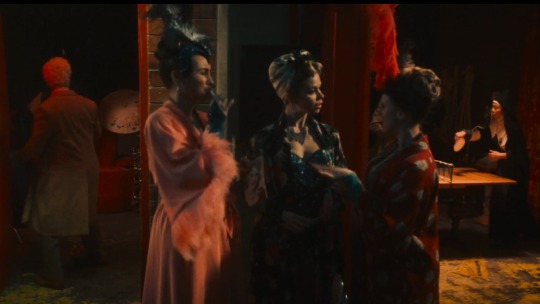
The nightingale
January means one thing: absolutely no migratory birds in Europe yet. They’re blissfully wintering in the warm sun of Northern Africa at the time. But, ironically, when the real nightingales flew off, a certain song about them suddenly gained popularity in the West End of London.
It might be a shock, but A Nightingale Sang in Berkeley Square wasn’t a hit from the start — even though its creators, Eric Maschwitz and Manning Sherwin, were certainly established in their work at this point. The song was written in the then-small French fishing village of Le Lavandou shortly before the outbreak of the Second World War with first performance in the summer of 1939 in a local bar, where the melody was played on piano by the composer Manning Sherwin with the help of the resident saxophonist. Maschwitz sang his lyrics while holding a glass of wine, but nobody seemed impressed. It took time and a small miracle to change that.
Next year, the 23-year-old actress Judy Campbell had planned to perform a monologue of Dorothy Parker’s in the upcoming Eric Maschwitz revue „New Faces”. But somehow the script had been mislaid and, much to her horror, replaced with the song A Nightingale Sang in Berkeley Square. She had never professed to be a singer but even so, she gathered her courage and went out onto the moonlit set dressed in a white ball gown. Her heartfelt rendition of the now evocative ballad captured the audience’s imagination and catapulted her West End career to stardom.
It was precisely 11 April 1940 at the Comedy Theatre in Panton Street and the revue itself proved to be a great success — not only it kept playing two performances nightly through the Blitz, but also returned the next year. And the still operating Comedy Theatre is mere five minutes on foot from the Windmill Theatre, where Aziraphale performed in 1941, and not much longer from his bookshop.
Now, most Good Omens meta analyses focus on Vera Lynn’s version of the song from 5 June 1940, but it didn’t get much attention until autumn, specifically 15 November, when Glenn Miller and his orchestra published another recording. And Glenn Miller himself is a huge point of reference in Good Omens 2.

According to the official commentary the infamous credits scene is establishing Aziraphale and Crowley’s final resolve for the next season using the same narrative device The Glenn Miller Story (1954) does in its most crucial scene. It starts with the tune (and audio in general) totally flat, then adds a piano on one side, and gradually becomes fully multidimensional. The Good Omens credits not only emulate the same sound effect, but bring it to the visual side of the narrative by literally combining the individual perspectives of the two characters together. Even though they’re physically apart, their resolve — and love to each other — brings them even closer than before. Aziraphale smiles not because he’s being brainwashed, but because he knows exactly what to do next.
Some of you might have noticed that Tori Amos’s performance for Good Omens is actually a slightly shortened version of Miller’s recording — much less sorrowful than Vera Lynn’s full lyrics that include i.a. this bridge:
The dawn came stealing up
All gold and blue
To interrupt our rendez-vous
I still remember how you smiled and said
Was that a dream or was it true?
Which is a huge hint when it comes to what we can expect from the main romantic plot line in the Good Omens series. The original song introduces an element of the doubt — it seems like there was no nightingale at all, only the mirage woven by the singer clearly intoxicated with love, much like Aziraphale and Crowley for the length of the last six episodes. Crowley’s comment in the season finale might allude to that interpretation, stating that there are no nightingales — never have been. It was all a dream. But the version we’re working with here is short and sweet, and devoid of that doubt. In the Good Omens universe angels were actually dining at the Ritz, the streets were truly paved with stars (or will be shown as such in the next season), and a nightingale really sang in Berkeley Square, as the omniscient, omnipresent, and omnipotent narrator, God Herself, had shown us.
All in all, it’s not an accident that the “modern” swing ballad activating Aziraphale’s memory and opening the 1941 minisode is the Moonlight Serenade by Glenn Miller. It’s a track naturally associated with A Nightingale Sang in Berkeley Square when it comes to music style and the sentiment in the lyrics.
But why the sudden popularity? In the great uncertainty and hardship of the Blitz, A Nightingale Sang in Berkeley Square provided solace and escapism for listeners, offering a glimpse of hope and love amidst the darkness of war. It became a universal anthem of resilience and a reminder of the power of love transcending difficulties. By January 1941 the whole city knew this tune by heart, including a certain West End aficionado with a cabinet full of theatre programs in his bookshop. Thanks to Maggie’s grandmother, he most probably had a record at hand to play during his spontaneous wine night with Crowley. We can only suspect the details, but it was was mutually established as their song exactly at that time or soon afterwards. Pretty sure we will see a third installment of that minisode for many, many reasons, but especially because of this “several days in 1941” answer by Neil:
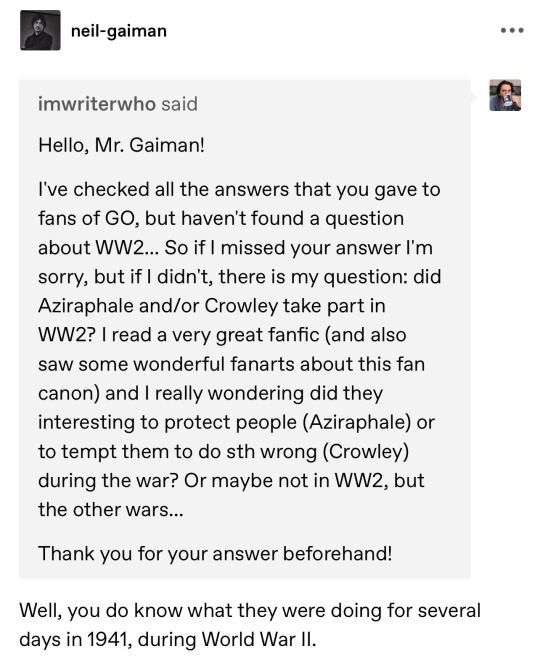

The Man Hunt
In 1941 A Nightingale Sang in Berkeley Square gained even more popularity as the romantic theme of the Fritz Lang’s newest film Man Hunt. The 1939 story by Geoffrey Household first appeared under the title “Rogue Male” as a serial in the Atlantic Monthly Magazine where it received widespread comment, soon becoming a world-wide phenomenon in novel form. Its premise criticizes Britain's pre-war policy of appeasement with Germany, ready to sacrifice its own innocent citizens to the tentative status quo. Sounds a bit like Heaven's politics, right?
Yes, I'm trying to make you watch old movies again — like all the other classics, Man Hunt (1941) is easily available on YouTube and other streaming websites.
The next part will include spoilers, so scroll down to the next picture if you prefer to avoid them.

The plot of the movie seems simple enough: the tall, dark, and handsome Alan Thorndike, who nearly assassinates Hitler, narrowly escapes Germany and back in London continues to evade the Nazi agents sent after him with the help of a young trench-clad “seamstress” named Jerry, bridging the class divide and becoming unlikely friends-partners-romantic interests. It doesn’t end well though.
Jerry's small London apartment serves as a hideout for Alan when he was being followed by Nazis, similarly to how Aziraphale's bookshop is a safe haven for both Crowley and Gabriel in S2. She helps the man navigate the streets and eventually out of London — by sacrificing herself and getting forcefully separated from him by a patrolling policeman. The last time they see each other, Alan watches Jerry look back at him yearningly and disappear in the fog, followed by the elderly officer.
Unfortunately in the next scene we learn that the latter is a Nazi collaborator and helps the agents apprehend Jerry in her own flat. Staying loyal to her love and uncooperative, she’s ultimately thrown out of a window to her death, but posthumously saves Alan once again — through the arrow-shaped hatpin he gifted her earlier that is presented to him as the evidence of her off-screen fate.
Long story short, thanks to Jerry’s sacrifice Alan not only survives, but is able to join the war that broke out in the meantime and go back to Germany, armed with a rifle and a final resolve to end what he started, no matter how long will it take. The justice will be served and the dictator will pay with his life for his sins.
I wouldn’t be myself without mentioning that the main villain has a Roman chariot statue similar to the one in Aziraphale’s bookshop, an antique sculpture of St Sebastian (well-known as the gayest Catholic Saint) foreshadowing his demise, and a chess set symbolizing the titular manhunt/game of tag with the protagonist.
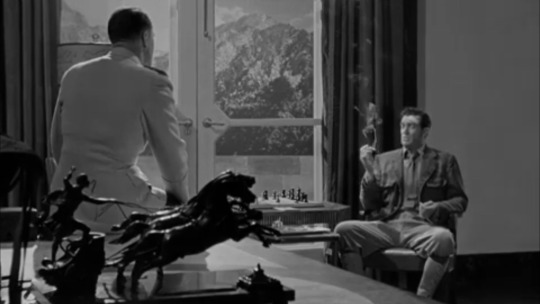
Aziraphale’s song
Will Aziraphale sacrifice himself as well? Or has he already? If his coin magic trick can be any indicator, we should expect at least a shadow of a danger touching the angel’s wings soon.
Let’s sum up the 1941 events from Aziraphale’s perspective: the very first time they’ve interacted after almost a century, Crowley actively sabotaged his entire existence twice by stepping onto a holy ground and by being outed by agents of Hell, both on the very same night and both because of his undying dedication to the angel. That’s enough of a reason not only for performing an apology dance, but also maintaining a careful distance for Crowley’s sake for the next 26 years. Only when he heard that his idiot was planning to rob a church, he gave up since he “can't have him risking his life”.
That’s when Crowley, sitting in a car parked right under his bookshop, offered him a ride. It wasn’t even subtle anymore. It was supposed to be a date, this time both of them understood it. But Aziraphale wouldn’t risk Crowley’s safety for his own happiness, especially not when he can name his feelings towards him and knows that they are reciprocated — the biggest lesson he learnt back in 1941.
So he did what he’s best at, he cut Crowley off again, but this time with a promise of catching up to his speed at some point. Buddy Holly’s Everyday, which was originally planned to play afterwards instead of the Good Omens theme, adds additional context here:
No, thank you. Oh, don’t look so disappointed. Perhaps one day we could... I don't know… Go for a picnic. Dine at the Ritz.
Aziraphale, carefully looking around and feeling observed through the whole conversation in the Bentley, consciously used the “Dine at the Ritz” line from A Nightingale Sang in Berkeley Square, from their song, as a code only the two of them understand. Not as a suggestion to go out for a meal, but a promise. A hope for the privilege of being openly in love and together — maybe someday, not now, when it’s too dangerous — even if it leads to a bad ending.
Fast forward to 2023 when for one dreadful moment Crowley’s “No nightingales” robbed Aziraphale even of that semblance of hope. He looked away, unable to stop his tears anymore. Only their kiss helped him pull himself together and make sure that a nightingale did sing the last time he turned — just like in their song — this time without a smile, as a goodbye.
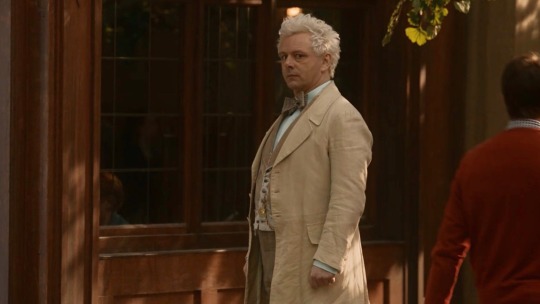
#a nightingale sang in the london blitz#the song is a code#and is miracled as a sign#aziraphale needs a hug#no nightingales#history rant#yuri is doing her thing#the good omens crew is unhinged#neil gaiman#st dunstan-in-the-east#1941 minisode#1941 flashback#a nightingale sang in berkeley square#good omens#good omens meta#good omens 2#go2 meta#go2#ineffable husbands#aziraphale#crowley#1941 aziraphale#1941 crowley#the blitz#man hunt (1941)#the glenn miller’s story (1954)#why am i like this#why do i do this to myself#long post
327 notes
·
View notes
Text
Countdown to Kisame Week '25!

We are now six weeks away! For this week's batch of Shark Facts, we're taking a peek at sharks and speed!

Did You Know...
The fastest shark on the planet is the Mako Shark; at 13 feet long, it can reach speeds of over 45 mph thanks to its long, slender body and spear, torpedo-shaped frame. There are individuals that have been recorded at close to 60 mph!
Speed is not just about spriting–some sharks can travel great spans of ocean in record breaking time! The Great White Shark has been known to swim over 1000 km in less than a year, spanning regions from Hawaii to South Africa and the northwest coast of Australia. This helps them feed and reproduce in the best conditions for their species to thrive.
Sharks also use their burst of speed in order to jump out of the water. Using their strong muscles and bullet-like frames, Great White Sharks are known as some of the most aerodynamic fish on the planet–individuals have been recorded breaching the waves almost at 15 feet high in order to surprise their prey.
Join us for Kisame Week 2025!
And so the countdown begins for Kisame Week 2025, our fifthyear running a week long event in celebration of our favourite shark man.
Event Timeline:
Prompt Voting: April 27th-May 11th ➡️ Prompt Voting Closed! Prompt Release: May 15th ➡️ Find the Prompts here! Kisame Week Posting: July 6th-13th
This year, we included AUs in the list of items to vote, but that doesn't mean that there isn't a bonus Any AU day! The ones that were submitted this year but didn't win were added anyway to choose from
Our rules have not changed, so I will be recycling the old posts from previous years! If it says 2024 on it, you saw nothing
How to ParticipateAny AU ListGeneral FAQ
Our DMs are always open, so feel free to drop a question should you have one!
#kisame hoshigaki#hoshigaki kisame#naruto events#kisame week#kisame week 2025#shark facts#we love sharks
11 notes
·
View notes
Text
Foxhog’s Vision for Rural India

Founded in 2017, Foxhog Ventures is a US-based venture capital firm driving measurable social impact through its pioneering “VC for Villages” model.As momentum builds in the American trade alliance, Foxhog ensures that growth reaches those often left behind by investing directly in rural entrepreneurs and underserved communities. As a leader in rural venture capital and impact investing in India, Foxhog is reshaping how finance empowers grassroots change.
“VC for Villages” isn’t just a model, it’s a mission. By funding farmers, shopkeepers, and small businesses in rural areas, Foxhog provides access to capital, business support, and long-term resources. This initiative has helped reduce farmer suicide rates in India and strengthened local economies from the ground up.
Now operating in six countries including India, Africa, and the Philippines. Foxhog demonstrates a clear commitment to impact investing on a global scale. Its investments span agriculture, retail, and dairy, tailored to the real-world needs of rural communities.
Foxhog is also emerging as a commercial banking force, with a network of branches and micro-branches providing inclusive finance in regions long underserved by traditional banks.
Key Benefits of “VC for Villages”: -Funding for rural startups and small businesses -Promotion of sustainable livelihoods and economic independence -Support for rural innovation and entrepreneurship
Recognised by the Times of India as an Emerging Venture Capital leader in rural funding, Foxhog is committed to purpose-driven storytelling and impactful brand collaborations.Whether through co-created campaigns or impact-first marketing, this partnership invites brands to align with a cause that delivers lasting, visible change.
With its global expansion, local focus, and strong social impact, Foxhog Ventures is building a future where rural economies thrive and the momentum is only growing.
#Foxhog #Venturecapital #Agriculture #Rural #Investment #Funding #Finance #TOI
3 notes
·
View notes
Text
Spec Evo Profile - Plant with Eyes
Taxonomy
Kingdom: Plantae
Division: Angiospermae
Class: Eudicots
Order: Solanales
Family: Solanaceae
Genus: Photodectes
Species: P. visus
Introduction
Photodectes visus is a plant species that is notable for its development of simple photoreceptive organs analogous to primitive eyes, allowing it to perceive movement and changes in light intensity with greater precision than known plant species.
Morphological Features
The plant resembles a stout, low-lying herbaceous perennial, with broad leaves and a central inflorescence column. Dispersed across the adaxial surface of mature leaves are small cup-shaped depressions containing:
A translucent epidermal dome (resembling a cornea)
A pigmented basal region with tightly packed anthocyanin-rich cells (analogous to a retina)
Subdermal phytochrome-rich tissues that trigger rapid nastic responses
These photoreceptive nodes—dubbed ocellar pits—do not create a focused image but can detect light direction, intensity, and rapid changes in luminance. Their architecture mirrors early-stage optical evolution seen in some cnidarians and mollusks.
Functional Adaptations
In high-browsed environments (e.g., grasslands with frequent ungulate disturbance), P. visus benefit from:
Light-triggered leaf folding to shield vulnerable surfaces
Coordinated emission of volatile terpenoids to attract predatory insects when shade disturbance is detected
Circadian regulation optimized for detecting dawn/dusk predation patterns
Evolutionary Pathway
The emergence of ocellar pits in P. visus can be traced to incremental co-option of light-sensitive pigments (e.g., cryptochromes, phytochromes) and preexisting trichomes or stomatal crypts, which provided a scaffold for the development of focusing structures.
Habitat and Distribution
Photodectes visus inhabits semi-open temperate grasslands and montane meadows, particularly within the eastern Andean foothills spanning central Bolivia and northern Argentina. These regions are characterized by a mix of strong solar exposure, intermittent cloud cover, and fragmented shade from scattered shrubs and boulders. Such conditions create ideal microhabitats for a plant that relies on detecting subtle variations in light and shadow.
The species favors areas with moderate herbivory from both native fauna—such as deer and camelids—and introduced livestock. Its light-sensitive structures allow it to respond rapidly to overhead movement, making it better adapted to environments with frequent visual disturbances caused by grazing animals or aerial motion.
Secondary populations may exist in analogous high-altitude savannas of East Africa, including portions of Kenya and Tanzania, where similar ecological pressures and seasonal light cycles prevail. However, no empirical evidence currently supports its presence in these areas.
The distribution of P. visus is patchy, with populations localized in microhabitats where selective pressures—such as herbivory intensity and light variability—are consistently present.
#art#drawing#illustration#sketch#artwork#artist#creature#creature art#creature drawing#plant#speculative biology#speculative evolution#speculative zoology#spec bio#spec evo#literature#writing#creative writing
2 notes
·
View notes
Photo

Creating a sense of place has been a recurring garden theme for years now, and it lends authenticity to any setting, especially here in the Southwest. For me, nothing does this better than the use of succulents, both locally native ones and those that are well-adapted from far-off places. This may be one of the few unifying garden themes that rightfully extends across our Southwest region, from the California coast to South Texas. Indeed, succulents seem to be everywhere these days! Their water-thrifty nature is a strong selling point in a region with erratic precipitation, recurring droughts, and frequent hot temperatures. Don’t have time to water today? They’ll still be there tomorrow. Dealing with gritty poor soil? Who cares! Going on vacation? No worries . . . they are the ultimate in durable plants.If that is not enough to sell you, their spectacular diversity of form and color adds a sculptural element like no other category of plant, whether planted en masse in the ground or used in containers as focal points in cooler regions. Choosing your favorites is going to be your biggest challenge. Knowing your conditions is the first consideration, as some tolerate hot sun better than others, and many do best in bright shade. There is endless info online to help you decide. Listing my own favorites could easily surpass the one hundred mark, so I’ll narrow it way down to just a handful of categories. All the following species will need: Excellent drainage Dry intervals between watering Full to dappled sun, depending on the extremes of your own conditions. Most are hardy into Zone 8 or 9, but frost tolerance varies, so do some research for your area. Tree houseleek Aeonium spp. and cvs. Zones: 9–11 Size: Up to 3 feet tall and 2 feet wide, depending on the cultivar Aeoniums are among the largest rosette-leaved plants in the sedum family, originating mainly in North Africa and the Canary Islands. A. arboreum and other species are attractive enough on their own, but selected variations and hybrids now span a wide range of colors and sizes. A few can have robust dinner plate–sized rosettes from minty green to nearly black-wine in color. Clustered evenly on sturdy stems up to 3 feet tall, they complement any other succulents with their perfect symmetry and flowerlike form. Although they’re excellent in sun on the West Coast, you’ll need to provide dappled light in desert locations like Tucson, Arizona. Some tolerate light frost, but others will not, so do your research and be prepared to protect them in colder areas. New colorful hybrids labeled as × Semponium, were created by crossing Aeonium with the tough genus Sempervivum. These new options have added to the color/size selection but exhibit little if any of their hardy Sempervivum heritage. ‘Arizonia Star’ Weber agave Agave weberi ‘Arizona Star’ Zones: 8b–11 Size: Up to 5 feet tall and 7 feet wide Agaves come in all sizes, from 3-inch minis to 8-foot giants. Some are formidably armed with teeth and spiny tips, and others are soft-leaved and gardener-friendly. A favorite of mine is ‘Arizona Star’ Weber agave. Allow adequate space when planting as it can reach 3 to 6 feet across in surprisingly short order. The gold-edged smooth leaves are luminous when backlighted, allowing the plant to stand out as an elegant focal point whether in the ground or elevated in a container. Santa Rita prickly pear Opuntia santa-rita Zones: 7–11 Size: 4 feet tall and 5 feet wide Prickly pears are structural icons of the Southwest, and I have dozens in my gardens, from the giant (and less spiny) O. ficus-indica down to some truly miniature forms. But the one that gets my attention over and over in all seasons is the Santa Rita prickly pear. Native primarily to southern Arizona, it is widely planted due to its robust form and richly colored pads in shades of blue-green to violet-purple. The best color develops when grown in dry conditions and during winter chill. This comes close to a color “not found in nature,” as they say, yet here it is! Handle with care though. It is well armed with short bristles called glochids that detach easily and can lodge in skin, gloves, and fabric. Plant this in the background or a less-frequented area to be on the safe side. Hedgehog cacti Echinopsis spp. and cvs. Zones: 8b–11 Size: Up to 3 feet tall and wide, depending on the cultivar These small to medium cacti range from clustering barrel forms to midsize columns. They are easy to grow in morning sun or partial shade in desert areas and are also suited to well-drained containers in wetter climates. They make a sculptural focal point or accent all year, quietly increasing in size. After a dry winter rest, their fuzzy buds appear, slowly enlarging until some warm day in April when hand-sized blooms suddenly burst open in unison for a glorious one-day engagement. Occasional blooms may appear throughout the growing season, but most will last just one day, perhaps two. Watch the buds closely and plan a last-minute gathering to share the occasion with friends. Fencepost cactus Pachycereus marginatus Zones: 9–11 Size: 12 feet tall and 3 feet wide (over time) The famed fencepost cactus hails from Mexico and needs little introduction. I include this as a favorite because it is one of the larger succulents that contributes height and structural elegance with minimal spikiness. Smooth vertical lines are uninterrupted by stops and starts like some columnar cacti, and its spines are tiny and do not detach easily, clustered only along the symmetrical ribs, which makes for easier handling when necessary. A better focal point or backdrop plant is hard to find, and slowly clustering specimens just keep getting better with time. Echeveria Echeveria spp. and cvs. Zones: 9–11 Size: Up to 12 inches tall and wide The pastel rosettes of echeveria are the perfect complement to all the above plants, coming in shades of waxy aqua-blue to rosy purple, wine red, and mojito green. In hot climates they may prefer a bit of light shade but in coastal areas can tolerate full sun. Depending on your conditions, they may appreciate a bit more moisture than other succulents, but good drainage is still essential, and they will tolerate dry periods without complaint. In recent years many hybrids have been created with closely related genera. The diversity is endless, so it’s best to see them in person and buy the ones you like. These make colorful container combinations and enliven rock gardens in mild climates—there are few limits to creative uses of these stunning plants. Discuss this and any other gardening topic in our Southwest gardening forum.Find more information on Southwest gardening here. Dan Johnson lives and gardens in Denver, Colorado, and in Tucson, Arizona. He is an associate director of horticulture for the Denver Botanic Gardens. Photos: Dan Johnson Fine Gardening Recommended Products Bee Watering Station with Vivid Flower Design Fine Gardening receives a commission for items purchased through links on this site, including Amazon Associates and other affiliate advertising programs. Thoughtful Combo: You will receive a bee feeder and 30 glass marbles. This thoughtful combo can provide clean water for the bees, you just need to put the marbles into the bee watering station, add water (note: the water level should not exceed the height of the marbles) and hang them in the right place. The round, colored marbles can provide a place for the bees to stand and prevent them from falling into the water, effectively keeping the bees safe. Fine Material: This exquisite bee bath is made of high quality iron material, smooth surface, rust and weather resistant, not easy to fade, sturdy and reliable. Bee cups for garden can well meet the drinking water needs of lovely bees, and it can also provide food for bees, such as sugar water, nectar, etc., attracting more bees to your outdoor area and making your garden full of vitality. Perfect Size: The butterfly watering station has an overall height of 13.4 inches, a bowl diameter of 9.4 inches, and a weight of 0.44 pounds. The bee cup serves the needs of the bees well without plunging them into dangerously deep water or taking up unnecessary space in your garden, and this compact and efficient design makes it a practical addition to any outdoor space. Elegant Design: Our bee watering cups are designed in unique flower shapes with vibrant and realistic colours to attract lovely bees to your garden and patio, bee feeders for outside are not only functional but can also be used as a landscaping element, their vibrant floral patterns enhance the beauty of your garden. Multicolored Decoration: Colorful bee water stations look like flowers in a garden, flower bed or pot and attract bees and butterflies. They can drink or bathe in bee feeders, which are highly decorative and practical. The Crevice Garden: How to make the perfect home for plants from rocky places Fine Gardening receives a commission for items purchased through links on this site, including Amazon Associates and other affiliate advertising programs. A crevice garden replicates the environmental conditions of mountain tops, deserts, coastlines, and other exposed or rocky places on earth. These striking garden features provide perfect conditions for the plants native to these far-off places, bringing the cultivation of these precious gems within everybody’s reach. Lee Valley Garden Obelisks Fine Gardening receives a commission for items purchased through links on this site, including Amazon Associates and other affiliate advertising programs. Sturdy yet lightweight, these obelisks provide ample support for climbing plants while being easy to install and move. The medium obelisk stands 68 1/2" high overall with a diameter of about 9 1/2", compact enough for smaller containers indoors or out. The large size stands 86 1/2" high with a diameter of 15 3/4", ideal for larger outdoor spaces and containers. Source link
3 notes
·
View notes
Text
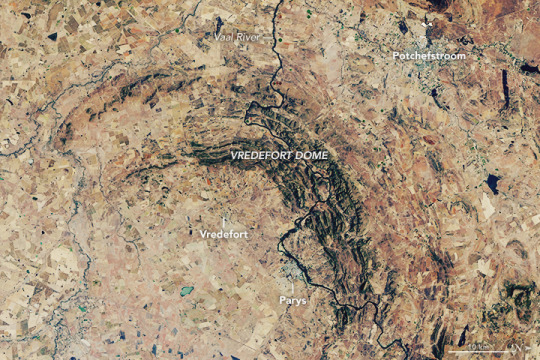
Blast From the Past: Vredefort Crater
Impact craters exist on every continent on Earth. While many have eroded away or been buried by geologic activity, some remain visible from the ground and from above. This week, we revisit stories featuring some of our most captivating satellite images of impact sites around the planet. The images and text on this page were originally published on September 1, 2018.
About two billion years ago, an asteroid measuring at least 10 kilometers across hurtled toward Earth. The impact occurred southwest of what is now Johannesburg, South Africa, and temporarily made a 40-kilometer-deep and 100-kilometer-wide dent in the surface. Almost immediately after impact, the crater widened and shallowed as the rock below started to rebound and the walls collapsed. The world’s oldest and largest known impact structure was formed.
Scientists estimate that when the rebound and collapse ceased, Vredefort Crater measured somewhere between 180 and 300 kilometers wide. But more than 2 billion years of erosion has made the exact size hard to pin down.
“If you consider that the original impact crater was a shallow bowl like you would serve food in, and you were able to slice horizontally through the bowl progressively, you would see that the bowl’s diameter will decrease with each slice you take off,” said Roger Gibson of University of the Witwatersrand and an expert on impact processes. “For this reason, we are unable to categorically fix where the edge now lies.”
According to Gibson, the uplift at the center of the impact was so strong that a 25-kilometer section of Earth’s crust was turned on end. The various layers of upturned rock eroded at different rates and produced the concentric pattern still visible today. Vredefort Dome, which measures about 90 kilometers across, was observed on June 27, 2018, by the Operational Land Imager (OLI) on Landsat 8.
Notice that only part of the ring is visible. That’s because areas to the south have been paved over by rock formations that are less than 300 million years old. The young rock formations have begotten fertile soils that are intensely cultivated.
The darker ring in the center of this image, known as the Vredefort Mountainland, has shallow soils with steep terrain not suitable for farming, so the area remains naturally forested. Along the ridges in the Mountainland you can see white lines: these are the hardest layers of rock, such as quartzite, which resist erosion. The outer part of Mountainland has exposed rocks that are roughly 2.8 billion years old; this is the Central Rand Group, the source of more than one-third of all gold mined on Earth.
Visitors to the impact site today can witness geologic time by traversing just 50 kilometers from Potchefstroom toward Vredefort. The journey would take you from shallow crustal sedimentary rocks deposited between 2.5 and 2.1 billion years ago, ending with 3.1- to 3.5-billion-year-old granites and remnants of ocean crust that were once about 25 kilometers below Earth’s surface.
“Such exposed crustal sections are incredibly rare on Earth,” Gibson said. “The added bonus here is that the rocks preserve an almost continuous record spanning almost one-third of Earth’s history.”
NASA Earth Observatory image by Lauren Dauphin, using Landsat data from the U.S. Geological Survey. Story by Kathryn Hansen.
2 notes
·
View notes
Text
How To Save A Desert Oasis—Before It Vanishes Completely
For Centuries, Hundreds of Millions of People Have Relied On Desert Wetlands That Are Now Disappearing. Can Blending Ancient Knowledge and Modern Innovation Protect These Unique Ecosystems?
— By Tristan McConnell | Photographs By M'hammed Kilito | May 6, 2025

Climate change has already devastated many oases across Morocco, and it's only going to get worse: Temperatures in Morocco are projected to rise by as much as nine degrees Fahrenheit by the end of the century, and rainfall to be reduced by 30 to 50 percent.
Driving south out of the Atlas Mountains into Morocco’s Drâa Valley, travelers find that the landscape becomes increasingly stark until the paved national highway vanishes into the desert at the oasis town of Mhamid el Ghizlane.
Sometimes known as the gateway to the Sahara, Mhamid and its surrounding villages are home to about 6,100 people. For generations, the settlement has straddled the Drâa River, with wispy tamarisk trees lining the road on the north bank of the river and palm plantations spreading out to the south. But today the concrete bridge built to span the water rises over a dry riverbed of sand and gravel. Tourists still come to Mhamid, drawn to camel treks, camping, and sandboarding. They arrive by the busload and make their way to hotels that offer swimming pools and massages.
Halim Sbai, 55, tall and bespectacled, with dark, gray-flecked hair, was born in the town. Like a lot of residents, he remembers a different Mhamid. Greener. Lusher. When he was a kid, he herded livestock beneath the dense shade of thick groves of palm trees and fished in the Drâa, Morocco’s longest river, as it wound lazily through town. In the decades since, he has watched the oasis shrivel as the rain has all but stopped and the river has dried up. The thick forests of date palms have withered and thinned, and the fields of fruit and olive trees have produced less and less each year. Most young people have escaped for a better life elsewhere, leaving houses and entire neighborhoods to be swallowed by the encroaching dunes.

At the Tinghir Oasis in Central Morocco, Crops Like Barley, Alfalfa, and Wheat are Protected from the Desert Winds by Date Palms.
“When there is no water, nothing green, the sand becomes very strong, a very fast enemy,” says Sbai. “It takes a lot of land.” The desert is pressing in from every direction. According to Sbai, the outer edge of the oasis moves inward by more than 300 feet each year. Sometimes Sbai worries that he might be witnessing the end of the oasis altogether and, with it, an ancient ecosystem—and the nomadic culture and traditions it enables—that he holds dear.
For thousands of years people have lived and thrived in oases, developing a complex agricultural system finely calibrated to the harsh desert environment, with its water scarcity and ecological fragility. By some measurements, oases occupy 740,000 square miles worldwide—roughly three times the area of Texas—and in North Africa and Asia sustain an estimated 150 million people. In Morocco, oases are home to one million people. The stresses of contemporary climate change are accelerating with increasing aridity, temperatures, and desertification, as well as destructive floods and wildfires, yet Sbai is an optimist steeped in nomadic culture, and he believes that oases contain the seeds of their own salvation.
“What Can You Offer Young People To Make Them Stay?” — Thomas Duncan, Co-founder of Joudour Sahara Music School
What Is An Oasis? An imagined place? A mythical one? An isolated, palm-fringed pool in the desert? A place of safety? Somewhere desperate travelers might find relief, or dismay if the oasis turns out to be a mirage? Ecologically, it is simply an area made fertile by a water source in an otherwise harsh and arid environment. But human ingenuity has transformed oases into complex civilizations.
Ten thousand years ago, northern Africa was hammered by strong monsoon rains and the Sahara was verdant. But the climate gradually shifted, and the grasslands and rivers dried up. In the newly unforgiving desert landscape, water was scarce. Where people found it, they exploited it and created pockets of habitable land that made life not just possible but prosperous, providing homes and livelihoods to many thousands. Radiocarbon-dated barley and wheat grains, as well as millstones used to grind flour, show that oases were already developing in the Drâa Valley during the fifth century.
As oases grew, so too did Saharan trade. Date palms, the hallmark species of the oasis, are drought and heat resistant, and grow readily in the desert wherever there’s water close to the surface. But it takes huge amounts of labor and engineering to successfully cultivate them. These costs were in part met by the salt, gold, and textile traders who plied the caravan routes between Marrakech and Timbuktu. Oases were a place for them to rest and restock before their next expedition. As Sbai puts it, “You can’t be a nomad all the time, just moving everywhere. You need to stop, relax.”


Graphic: Liz Sisk, NGM Staff. Map: Rosemary Wardley, NGM Staff. Sources: Atlas of the Saharan and Arabian Oases, LabOasis Foundation; Mohamed Ait-El-Mokhtar, Hassan Il University; Carmen Moreno and Oriol Domínguez, Terrachidia ONGD; Mohammed Hssaisoune, Ibn Zohr University.
The essential ingredients of the oasis are date palms and people, and neither flourishes without the other. The thick fronds of the date palm’s crown provide a shady canopy beneath which other species can grow, protected from the punishing sun. Scientists have described the date palm as a keystone species for the ingenious three-tiered agricultural ecosystem it anchors. The tree produces valuable dates, and the humid, temperature-controlled microclimate beneath the dense overstory fosters other crops, such as fruit, olive, and henna trees. At ground level, beans, wheat, barley, and alfalfa grow protected from the wind and sand by the palm’s tough trunks.
Mohamed Ait-El-Mokhtar, professor of plant physiology and biotechnology at Hassan II University in Casablanca, who has studied the impact of climate change on oasis ecosystems, describes the date palm as “the umbrella” beneath which all else thrives. “If we want to sustain this structure in the oasis, we have to sustain the date palm,” he says.
Oases worked, in other words, because they stayed in balance. Rainfall in this part of Morocco was always sparse, but still the Drâa was filled with snowmelt and rainwater that flowed more than 11,000 feet down from the peaks of the High Atlas Mountains. Farming communities worked together to dig and maintain geometric networks of irrigation channels to siphon river water into the palm plantations. They used stone, mud bricks, and rammed earth to build warren-like fortified homes and villages—known as ksars and casbahs—and expanded their agricultural lands into the increasingly irrigated desert.
But climate change has devastated many oases, and it’s only expected to get worse. Temperatures in Morocco are projected to rise by as much as nine degrees Fahrenheit by the end of the century, and rainfall to be reduced by 30 to 50 percent. Extreme flooding is on the rise, and government figures show that around 10,000 palm trees burn every year in wildfires.

Left: Drought-stressed date palms in Morocco’s Tighmert Oasis are especially subject to wildfire. A few weeks before this photo was taken, a blaze struck nearby trees and houses. Right: Water at the Figuig Oasis in northeastern Morocco is distributed via a network of stone dividers; rights are prescribed by ancestral contracts and are inherited, passed on via marriage, or sold.

Like all open-air canals in the desert, this irrigation canal leading to Tighmert Oasis requires constant attention and maintenance from locals like Fal Bardid to keep it from filling with sand.
Near Mhamid, the palms survive largely because farmers use groundwater extracted with individual solar pumps to irrigate their plots. They are cheap to run and make extracting water easy, but they are a short-term fix. The brackish groundwater increases the salinity of the soil, making growing crops even more difficult; and pulling straight from the aquifer can put it out of reach of even the deepest palm tree roots. “As long as people keep pumping groundwater with solar, they think there’s no problem,” says Sbai. But “when you use solar, you can very quickly kill the oasis.”
Abdelkarim Bannaoui, a 48-year-old with a thick mustache and dressed in a white tunic and turban, has farmed in Mhamid all his life. When he was growing up, there were periods of drought that would decimate crops, he says, “but the palms stayed strong.” Now even they wither, and date yields are falling. The palm cover on his acre plot is scant, and the fruit trees are gone. Unable to rely on the river or rain for irrigation, he uses groundwater pumped from his own well at the far end of his land, and every few years he must dig it deeper. In 1996 a 23-foot well was enough; now it reaches to 52 feet.

Top: Five miles from the town of Assa in southern Morocco, these palm trees are all that’s left of the once lush Tanoueest Oasis, which has been overrun by sand. Bottom: A potter at the Skoura Oasis in central Morocco, Mohammed El Fakhar spends six hours each Sunday collecting fuel for his kiln.

Left: Mhamid el Ghizlane, in southern Morocco, is sometimes known as the gateway to the Sahara. It straddles the Drâa River, which rarely contains water anymore. Right: As oasis towns hollow out, buildings fall into disrepair; eventually they’ll be reclaimed by the desert.
“It is in God’s hands,” Bannaoui says, “but as I see it, there is no future for farming here because of the water. In agriculture, you always lose.” He expects that eventually his three young sons, all of whom are under 10, will abandon farming and the oasis.
In a destructive feedback loop, migration hastens the oasis’s surrender to the desert. The local population has fallen by a fifth in the past 20 years, and as mostly young people leave, it’s harder for the aging population that remains to maintain the palm trees and irrigation channels. “There is nothing to do here because there’s no rain, so people emigrate,” says 61-year-old farmer Abdelaali Lahbouch, whose three sons have left. “There is nobody around, just us old people.”
“If We Want To Sustain This Structure In The Oasis, We Have To Sustain The Date Palm.” — Mohamed Ait-El-Mokhtar, Professor of Plant Physiology
In his long white djellaba and purple scarf, Lahbouch takes me to see the sand-filled irrigation channels and sand-covered fields nearby. “There’s nobody here to help us work,” he says, shrugging. Neglected and abandoned plots let the desert in, and a few days of strong wind is all it takes to coat the earth with sand, starting the process of soil degradation.
As we walk around Bounou, one of Mhamid’s satellite villages, Sbai tells me that of the 200 families that used to live here, only five remain. The rest, he says, have seen their homes taken by the desert. There are no longer enough residents to clear the sand-clogged alleys and passages, nor to maintain and repair the rammed-earth walls of the ksar, which are crumbling and collapsing like a sandcastle in a rising tide. One of the few still living here is 68-year-old Belaaid Lagnaoui, a thick-set farmer who long ago ceded the ground floor of his mud-walled house to the desert. From his perch upstairs, he uses the flashlight on his phone to peer at the sand-filled hall below.

As the water table drops across much of Morocco, wells like this one at Merzouga Oasis must be dug ever deeper.
If there is any chance of rescuing Mhamid and charting a path toward saving other oases across the world, it might come from a small, two-acre plot on the edge of town, where Sbai has constructed a laboratory of pilot projects aimed at holding back the desert and holding on to water.
Acacia and tamarisk trees sprout from shallow circular planters called Waterboxxes that were designed by a Dutch horticulturalist named Pieter Hoff. These planters reduce the amount of water young saplings need and act as a barrier against the desert. For years, Sbai has worked with a Dutch foundation called Sahara Roots planting hundreds of trees around Mhamid to strengthen what he calls “the natural system to stop the sand.” He has also introduced pipes for drip-fed irrigation, which snake across vegetable beds and use far less water than the traditional method of flood irrigation that ceased to make sense when the river stopped flowing.
These solutions, though modest in scope, are all aimed at restoring and recalibrating the balance between the people of the oasis and the changing landscape in which they live. Take the solar pumps. Climate change has made them necessary, but when they’re privately owned, as most currently are, people take what they want, regardless of the needs of others. Sbai has been pushing local farmers and government agencies to reconsider how the pumps are used. “In nomadic culture,” he says, “you need to share everything.” Thanks in part to Sbai’s lobbying, Morocco’s National Agency for the Development of Oasis Zones and Argan Trees is working to install community solar pumps and wells to replace private ones in Mhamid and elsewhere so that water can once again be managed communally and shared equitably.
Of course, none of that will matter if the entire population of Mhamid leaves for better opportunities elsewhere. So in 2016, Sbai co-founded the Joudour Sahara music school with Thomas Duncan of the Playing for Change Foundation, a California nonprofit that uses music to bring communities together. “We asked, What can you offer young people to make them stay?” says Duncan. Their answer is to celebrate, share, and preserve knowledge of the cultural traditions of the desert and the oasis. Children attend weekly music classes in the traditional Ahidous, Gnawa, Rokba, Akalal, and Chamra styles. The school has since given rise to the Zamane Festival, which features hundreds of musical artists from across the Sahara and attracts thousands of visitors.

Two seasonal workers harvest dates in Saudi Arabia’s Al Ula Oasis. Date palms resist drought and heat, but cultivating them is labor-intensive.
The school’s new home, the Joudour Sahara cultural center, was completed last year and consists of two modern rammed-earth buildings, designed by Moroccan architect Aziza Chaouni. One is a sunken amphitheater for musical performances, the other a classroom with a subterranean cistern. The two structures are connected by underground water pipes. Rainwater is collected and stored in the reservoir. “Real resilience is saving every drop of rainwater,” says Sbai. A riad-style building for visiting musicians is under construction nearby. “The idea was to revive traditional materials that completely make sense in the area,” says Chaouni, “to build pride in traditional architecture, not to just copy the past but be innovative.”
Sbai often talks about the importance of nomadic culture, the need to live within the constraints of nature and the desert’s tough environment, to share resources as a community, to not waste anything. He says these old ways are key to the restoration and survival of the oasis in the face of climate change.
Sbai started as a tour operator before expanding into environmental and cultural activism. He still believes in the value of tourism to the oasis economy, but, he wonders, what kind of tourism? The kind that builds with concrete, fills swimming pools with precious water, and tears up the dunes for gasoline-fueled kicks? Or something slower and simpler, that treads more lightly on the land, exists in harmony with the landscape, and draws on the rich culture and history of the oasis?
One cold, clear evening, he reclines against a thick pouf on a handwoven carpet laid out by a fire. One of his guests is a Tuareg desert blues guitarist visiting the music school from Mauritania, who carefully serves tea poured from a small painted teapot heated in the fire’s embers. A waxing moon shines bright above, and a thick stand of date palms is silhouetted against the indigo sky. “We have the stars and a fire,” Sbai says. “We are the luckiest people on Earth.” The oasis is fragile, its future uncertain, but it is where Sbai comes from and where he belongs, and he is determined to save it.
— Based in Woodbridge, England, Tristan McConnell reported from Morocco for this story. His stories have been published in GQ, Emergence, Aeon, Harper’s, and Vox.
— An Explorer since 2020, M’hammed Kilito Photographed Oases in Morocco and Saudi Arabia for this story. Kilito lives in Rabat, Morocco, and his work has been published in the Atlantic, El Pais, and the British Journal of Photography.
#Deserts 🌵🐪🏜️🌴#Wetlands#Habitat Preservation#Conservation#Deser Oasis#Unique Ecosystems#Ancient Knowledge | Modern Innovation#Morocco 🇲🇦#Atlas Mountains | Drâa Valley#Tinghir Oasis
2 notes
·
View notes
Text
Shezad Habib
Mr. Habib has over 20 years of international business and strategy experience that spans across 30 countries. Mr. Habib brings with him business and financial advisory expertise as well as policy experience in both public and private sectors. Mr. Habib excels at new ventures, strategic planning, economic & industry analysis, market assessments, evaluation analysis, due diligence, deal structuring, relationship management, and results driven turnaround efforts.
Mr. Habib is currently the Founder and President of Manhattan Strategy Group (MSG) an INC 5000 company based out of Washington, DC. Mr. Habib advises the US Government on large scale multibillion-dollar Human Development and other major Federal initiatives, including but not limited to Education, Human Services and Workforce programs. Mr. Habib has also advised Fortune 100 clients in the energy, healthcare, consumer goods, financial services, and technology sectors (e.g. Microsoft, Google, Proctor & Gamble, Pfizer, American Express, Dow Chemical, AT&T).
Mr. Habib also establish Indus, the first Pakistan focused diaspora run policy and research focused independent/objective Think Tank in Washington DC and served as the organization’s Special Advisor. In his role, Mr. Habib oversaw strategic direction with a key focus on improving US-Pakistan dialogue and programming. Under Mr. Habib’s leadership, Indus developed partnerships with key academic institutions (John Hopkins, Georgetown, etc.) and prominent U.S. based think tanks (Wilson Center, Middle East Institute, USIP, Atlantic Council, and others) and conducted over two dozen successful policy related events in order to facilitate dialogue and understanding in a critical bilateral relationship. Given his tenure at Indus and previous experience, Mr. Habib has a strong understanding of the Pakistan landscape with access to the highest levels of Government, private sector, and NGOs throughout Pakistan.
Key Accomplishments (Strategy, Entrepreneurship, Human Development, and Policy) Founder of three separate multimillion-dollar businesses; growing two businesses organically and one via global acquisitions in France, South Africa, and Latin America Advised leading Fortune 100 Corporations in over 200 strategy projects over the last decade Supported over 50 Small Companies in launching new businesses, flushing out ideas and realizing funding from banks, SBA, investors, and Private Equity sources of capital Conceptualized proprietary strategy frameworks and tools for decision making and analysis Attended and presented at over 200 trade shows across industry verticals in 30 countries Conceived, organized, and implemented the first every two-day policy dialogue purely focused on Pakistan with over 30 speakers in Washington D.C. – Pathway to Change- Pakistan Policy Symposium (PPS) covering Economic, Security, and Human Development topic areas. Spearheaded planning and logistics for a 15,000-person event at CapitalOne arena in Washington D.C.–Indus was the principal diaspora organization facilitating PM Imran Khan's 2019 Community Address. Recognized philanthropic contributions to The Citizens Foundation (TCF), and over ten global charities Mr. Habib serves on the Board of multiple international businesses including Institute of Behavioral Psychology, Indique International, MTG International, iCare, and Patients Aid Foundation. He is the recipient of the 2006 ‘Business Man of the Year Award from New York’ presented by Congressman Tom Cole, Chairman of the Business Advisory Council. He is also the recipient of the 2011 ‘First Generation Entrepreneurship Award’ presented by the National Association of Entrepreneurship First Generation Council. Mr. Habib’s education includes Colby College (BA), New York University (Advanced Coursework) and Columbia Business School (CCBP).

2 notes
·
View notes
Text
Ross Ulbricht, Founder of the Forbidden Silk Road Website, Granted Full Pardon by Trump
Former President Donald Trump has granted a full pardon to Ross Ulbricht, the founder of the notorious Silk Road website. This dark web marketplace was infamous for facilitating the sale of illegal drugs and was linked to the deaths of at least six individuals.
Ulbricht, now 40 years old, was sentenced to life in prison in 2015 after being convicted on seven charges, including drug distribution and conspiracy to commit computer hacking. He is now a free man. Trump stated that those who convicted Ulbricht were "crazy" and described his sentence as "ridiculous" and a clear example of government overreach.
"I just spoke to Ross's mother to inform her that, in honor of him and the strong libertarian movement that supports me, I am pleased to sign a full and unconditional pardon for her son," Trump said, as reported by BBC.
Silk Road was shut down in 2013 after law enforcement arrested Ulbricht. The site was known for selling illegal drugs using Bitcoin, as well as hacking tools and stolen passports. During the trial, prosecutors claimed that the website facilitated the sale of drugs worth approximately $200 million.
Prosecutors also alleged that Ulbricht facilitated six hitmen, including one against a former Silk Road employee, although there was no evidence that any murders were actually carried out. The site was named after the historic trade route that spanned Europe, Asia, and parts of Africa.
Silk Road gained notoriety through media reports and online discussions, but users could only access the site via Tor, a system that allows people to browse the web anonymously. FBI documents indicated that the site had around one million registered users. Ulbricht was arrested in a San Francisco public library in 2013 during an undercover operation, where he was chatting online with someone he believed to be a colleague, but who was actually a federal agent in disguise.
Despite hopes that Ulbricht's harsh sentence would deter similar marketplaces, larger platforms emerged after Silk Road's closure. Trump had hinted at easing Ulbricht's sentence during a speech at last year's Libertarian National Convention. The Libertarian Party has advocated for Ulbricht's release, arguing that his case exemplifies government overreach.
Republican Congressman Thomas Massie, a Trump ally, praised the decision, saying, "Thank you for keeping your promise to me and others who have advocated for Ross's freedom." ⬤
2 notes
·
View notes
Text
Three Incredible African Safari Destinations

Africa is a famous vacation spot, with millions of tourists visiting the continent yearly to go on safari, a word in Swahili meaning trip. Visitors who go on safari have the opportunity to see a wide variety of wild animals in their natural habitat. Among the many safari destinations, Kenya, Tanzania, and South Africa are considered to be the best places to experience the beauty and splendor of the African wilderness.
For good reason, Kenya has long been regarded as the birthplace of the safari. It is home to the world-renowned Maasai Mara National Reserve, which gives tourists the chance to see the "Big Five" (elephant, buffalo, rhinoceros, lion, and leopard) and other wildlife including giraffes, hippos, and hyenas in one location. The Mara's diverse topography, from expansive savannahs to green riverine forests, provides the perfect backdrop for wildlife observation and photography.
The best time to go on safari in Kenya is during the dry season, which runs from July to October. This is when the spectacular Great Migration takes place, with over 1.5 million zebras, gazelles, and wildebeest moving from Tanzania's Serengeti National Park to Kenya's Maasai Mara in search of greener pasture. To reach the Maasai Mara during the Great Migration—which is recognized as one of the world's new wonders—the animals have to swim across the Mara River, which is packed with crocodiles, and sadly, many of them do not make it through the crossing. Predators such as lions, cheetahs, and leopards that lurk in the Maasai Mara still pose a threat to those animals that survive the Mara River crossing. Every year, thousands of visitors travel to Kenya and its neighbor Tanzania to witness the Great Migration.
Between July and October, travelers to Tanzania can also be a part of the Great Migration at the popular Serengeti National Park, which rivals Kenya's Maasai Mara in terms of natural beauty and wildlife. Tanzania is also home to the Ngorongoro Crater, a UNESCO World Heritage that hosts thousands of wild animals, including a large population of lions, elephants, wildebeest, and rhinos, making it one of the most densely populated wildlife areas in the world.
Another must-see destination in Tanzania is Mount Kilimanjaro, Africa's tallest peak. While not a traditional safari location, the iconic mountain adds to Tanzania's allure, offering opportunities for trekking and stunning panoramic views of the surrounding landscapes. Travelers interested in a more cultural experience can also interact with the Maasai people, a nomadic tribe living in Tanzania and Kenya who have rich traditions and a strong bond with the land and wildlife.
In South Africa, a well-liked safari attraction is Kruger National Park. This park is one of Africa's largest wildlife sanctuaries, spanning around 20,000 square kilometers. More than 500 bird species and 147 mammal species call it home, and many of the Big Five animals can also be spotted by visitors at Kruger National Park. The ideal time to go on safari at Kruger is also during South Africa's dry season, from April to October. At this time, animals congregate around waterholes and are easier to find because of the scant vegetation.
South Africa provides opportunities to visit wineries, seaside towns, and historical places like Nelson Mandela's jail cell at Robben Island, Cape Town, for people who want to mix a safari with other pursuits.
5 notes
·
View notes
Text
Unlock Growth with Android App Development Services

Introduction
In today’s fast-paced digital economy, establishing a strong mobile presence isn’t just an advantage—it’s essential for business survival. As smartphones become the primary gateway to the internet, companies must meet users on the platform they use the most: Android.
With over 70% of the global mobile OS market share, Android leads the world in mobile operating systems. Businesses that invest in professional Android app development services gain access to billions of users, spanning every region and industry. Whether you're a startup or a large enterprise, Android offers the flexibility, reach, and scalability needed to grow.
Custom-built Android applications are no longer a tech luxury—they are strategic tools for enhancing operations, deepening customer relationships, and driving measurable business growth.
The Business Case for Android App Development Services
Wider Reach and Market Penetration Android’s open-source nature and affordability have made it a global leader. It runs on a variety of devices across all price points, which means your app can reach a broader demographic. Android app development services help businesses harness this reach to connect with users wherever they are.
Cost-Effective Development Compared to other mobile platforms, Android development is often more affordable. There are fewer licensing costs, and developers have access to an extensive library of tools and frameworks. With the help of efficient Android app development services, businesses can build powerful apps without overshooting their budgets.
Tapping into Emerging Markets Android dominates in emerging economies, including India, Southeast Asia, Africa, and South America. Businesses looking to expand into these high-growth regions can benefit immensely from Android’s widespread adoption, guided by strategic Android app development services.
Custom Android Solutions for Every Industry
Adaptable Across Verticals Whether you’re in eCommerce, education, healthcare, logistics, or finance, Android apps can be tailored to meet your unique operational needs. Experienced Android app development services design apps with sector-specific features—like real-time delivery tracking for logistics or secure video consultations in healthcare.
Real-World Success Stories Brands like Flipkart, Practo, and Paytm have leveraged Android apps to scale operations and enhance customer experiences. These successes show how professional Android app development services can turn a mobile app into a competitive edge.
Features That Drive Growth
Scalability and Flexibility With the right architecture, Android apps can evolve as your business grows. From handling increased user loads to adding new features, scalable Android app development services ensure longevity and flexibility.
Seamless Integration Top-tier Android apps integrate effortlessly with CRMs, third-party APIs, payment systems, and enterprise tools—helping businesses streamline their workflows and create better user experiences.
Intelligent and Interactive UX User-centric design is critical. Leading Android app development services use modern UI/UX strategies and frameworks like Jetpack Compose and Material Design to deliver intuitive interfaces that drive retention and conversions.
Smart Tech Enhancements From AI-powered personalization to IoT connectivity, Android apps are now smarter than ever. Integrating these technologies through expert Android app development services opens up new dimensions of engagement and automation.
Choosing the Right Android App Development Partner
What to Look For Experience, a strong portfolio, client reviews, and technical expertise are non-negotiables. A reputable Android app development service provider will align with your business goals and offer scalable, secure, and innovative solutions.
Support Beyond Launch Post-launch updates, analytics, and maintenance are key to long-term success. Your development partner should provide robust post-deployment support to keep the app running smoothly.
The Development Process: Step-by-Step
Discovery & Strategy Understanding your audience, market, and goals sets the foundation. Leading Android app development services conduct deep research to ensure your app solves real problems.
Design & Development Wireframes, prototypes, and iterative development are used to create a seamless, functional experience. Agile methodologies ensure flexibility throughout.
Testing & Deployment Apps go through rigorous QA testing to ensure functionality, security, and performance before being published on the Play Store.
Driving ROI with Android Apps
Monetization Options Android apps support various monetization models, including ads, subscriptions, freemium, and in-app purchases. Strategic implementation ensures profitability.
Real-Time Analytics Built-in analytics tools help track user behavior, feature usage, and engagement levels, allowing for data-driven optimizations.
Cross-Device Compatibility Optimized apps perform consistently across phones, tablets, and wearable devices, ensuring maximum reach and satisfaction.
Conclusion
Investing in professional Android app development services is one of the most effective ways to future-proof your business. With Android’s global dominance, flexible technology, and cost efficiency, custom apps can serve as powerful engines for growth, innovation, and customer engagement.
The future belongs to mobile—and Android is leading the way. Now is the time to build, scale, and thrive with Android.
1 note
·
View note
Text
Top Trends Transforming the Porous Silicon Substrates Market Worldwide

Unveiling the Future of Porous Silicon Substrates
The porous silicon substrates market is undergoing a remarkable transformation, driven by burgeoning applications in microelectronics, biomedical engineering, and optoelectronics. With a projected compound annual growth rate (CAGR) of 8.2% from 2023 to 2030, this niche yet increasingly critical sector is poised for robust expansion globally. We examine the technological, geographic, and competitive dynamics shaping the market’s trajectory and offer detailed, region-specific insights and segmentation analysis.
Request Sample Report PDF (including TOC, Graphs & Tables): https://www.statsandresearch.com/request-sample/40260-global-porous-silicon-substrates-market
Key Porous Silicon Substrates Market Segmentation and Growth Drivers
Microporous, Mesoporous, and Macroporous: The Three Pillars of Porosity
Porous silicon substrates are categorized based on their pore diameters:
Microporous Silicon Substrate (<2 nm): Dominates the global market due to high surface area and superior chemical reactivity. Extensively used in drug delivery systems and photonic applications.
Mesoporous Silicon Substrate (2–50 nm): Gaining prominence in biosensing and energy storage applications.
Macroporous Silicon Substrate (>50 nm): Preferred for microfluidic devices and high-power electronics due to enhanced mechanical stability.
Microporous substrates maintain the largest share, supported by substantial research investment and extensive deployment across consumer electronics and healthcare industries.
Get up to 30%-40% Discount: https://www.statsandresearch.com/check-discount/40260-global-porous-silicon-substrates-market
End-Use Vertical Analysis: From Semiconductors to Biomedical Frontiers
Consumer Electronics
The consumer electronics sector represents the largest end-use segment, where porous silicon substrates enhance thermal management, EMI shielding, and battery performance. The trend toward miniaturization and flexible electronics further accelerates demand.
Healthcare
In the healthcare domain, porous silicon’s biocompatibility and controlled biodegradability make it an ideal material for biosensors, drug delivery platforms, and tissue engineering. Innovations in nanomedicine and implantable devices are expanding its usage rapidly.
Others
Other applications span environmental monitoring, energy harvesting, and optoelectronics, with emerging interest in using porous silicon in photovoltaics and gas sensors.
Porous Silicon Substrates Market Regional Insights: Mapping Global Growth
North America
The North American market is witnessing steady growth driven by rising R&D investment, particularly in the United States. Strategic collaborations between semiconductor companies and research institutions are fueling innovation in next-generation porous materials.
Asia-Pacific
China dominates the Asia-Pacific market with heavy investment in semiconductor innovation and digital infrastructure. National initiatives supporting AI chips, quantum computing, and MEMS technologies are fostering exponential demand. Meanwhile, Japan, South Korea, and India are emerging as strategic contributors due to technological adoption and government-backed funding schemes.
Europe
The United Kingdom led the European market in 2021 and continues to do so due to its strong industrial base and focus on biomedical innovation. Germany and France follow closely, supporting market growth through precision engineering and cross-border collaboration in chip manufacturing.
Middle East & Africa and South America
These regions, although in nascent stages, are witnessing growth through smart infrastructure development, IoT adoption, and international investments aimed at local semiconductor capabilities. Countries like Brazil and UAE are gradually integrating porous silicon technology into renewable energy and industrial automation initiatives.
Competitive Landscape: Key Players Shaping the Porous Silicon Substrates Market
Several global and regional players are competing through technological innovation, strategic partnerships, and vertical integration.
Notable Companies:
Refractron Technologies Corp – Known for robust material innovations and cross-sector applications.
NGK Spark Plug – Leverages its ceramic expertise for cutting-edge porous silicon deployment.
NORITAKE CO., LIMITED – Integrates nanotechnology into its porous silicon solutions.
Porous Silicon – Specializes in biomedical and photonic applications.
Siltronix Silicon Technologies – Focused on high-purity silicon wafers with advanced porosity control.
SmartMembranes GmbH, Microchemicals GmbH, and others contribute through focused niche innovations.
These firms differentiate by targeting specific porosity levels and application niches, ensuring steady technological evolution.
Porous Silicon Substrates Market Dynamics and Strategic Outlook
Porous Silicon Substrates Market Drivers
Growing demand for miniaturized, high-efficiency electronics
Expansion in biomedical research and implantable systems
Increased adoption in MEMS and NEMS technologies
R&D focus on biodegradable electronics
Porous Silicon Substrates Market Challenges
Complex and costly fabrication processes
Integration hurdles with existing semiconductor ecosystems
Limited commercial scalability in some emerging use cases
Porous Silicon Substrates Market Opportunities
Untapped potential in photovoltaics and water purification
Emerging markets prioritizing semiconductor sovereignty
Integration in next-gen 6G networks and wearable bio-devices
Future Outlook: The Path to 2030
By 2030, the porous silicon substrates market is expected to reach unprecedented heights, underpinned by multi-disciplinary innovation and cross-border collaboration. Strategic investments, government incentives, and research acceleration will be crucial to unlocking the next phase of growth.
Purchase Exclusive Report: https://www.statsandresearch.com/enquire-before/40260-global-porous-silicon-substrates-market
Conclusion
The global porous silicon substrates market stands at a pivotal point. With its proven utility in critical applications and accelerating innovation across sectors, this technology will remain foundational in the evolution of advanced electronics, medical devices, and nanostructured systems. Stakeholders that harness its potential early through targeted R&D, regional expansion, and strategic alliances will shape the future of this rapidly growing domain.
Our Services:
On-Demand Reports: https://www.statsandresearch.com/on-demand-reports
Subscription Plans: https://www.statsandresearch.com/subscription-plans
Consulting Services: https://www.statsandresearch.com/consulting-services
ESG Solutions: https://www.statsandresearch.com/esg-solutions
Contact Us:
Stats and Research
Email: [email protected]
Phone: +91 8530698844
Website: https://www.statsandresearch.com
1 note
·
View note
Text
The Rise of B2B Marketplaces
B2B marketplaces serve as digital meeting points for buyers and sellers. Over the last decade, they have gained traction due to the convenience, speed, and efficiency they offer to businesses looking to trade internationally. Traditional methods of sourcing and procurement, involving in-person meetings, trade shows, or middlemen, are increasingly being replaced by digital platforms like TradeKey.
TradeKey, launched in 2006, is one of the pioneers in the B2B online space, providing a platform where manufacturers, suppliers, importers, and exporters can interact seamlessly. The platform caters to various industries, including electronics, machinery, agriculture, textiles, chemicals, and more. With its headquarters in Saudi Arabia, TradeKey has a strong presence globally, particularly in emerging markets across Asia, the Middle East, and Africa.
TradeKey’s Unique Selling Proposition (USP)
What sets TradeKey apart from other B2B platforms is its focus on trust and verification. Given the rise of fraudulent activity and scams in international trade, buyers and sellers alike require a platform that ensures safety and reliability. TradeKey addresses this need through its Verified Buyers Database, a unique feature that guarantees that the buyers listed on the platform have undergone a rigorous verification process. This verification process helps in minimizing the risk of fraud and instills confidence in businesses using the platform.
This Verified Buyers Database is particularly valuable for suppliers and exporters looking to tap into global markets without the fear of encountering fake buyers or fraudulent transactions. TradeKey’s platform also allows businesses to verify potential buyers, ensuring that both parties involved in a transaction can trust each other, which is a significant advantage in today's interconnected global trade environment.
Navigating TradeKey: Key Features and Benefits
Global Reach and Industry Focus: TradeKey’s platform is vast, covering more than 9 million registered users from 240 countries. Its global network spans a wide array of industries, allowing businesses to find partners from virtually any sector. The platform's design allows suppliers and buyers to search for products based on industry categories, making it easier to find the right match.
Verified Buyers and Suppliers: As mentioned earlier, TradeKey’s verification system is one of its most crucial aspects. By focusing on transparency, the platform enhances trust among users. Verified buyers and suppliers can negotiate with greater confidence, reducing the risk of scams or unreliable business deals. This feature is particularly beneficial for small and medium-sized enterprises (SMEs), which may lack the resources to conduct extensive background checks on potential partners.
Trade Shows and RFQs: TradeKey provides access to global virtual trade shows, allowing businesses to showcase their products to a global audience without the costs associated with physical participation. Additionally, businesses can post Request for Quotations (RFQs), making it easy to receive proposals from multiple suppliers or manufacturers. This feature streamlines the procurement process, especially for buyers looking to compare offers and select the best deal.
Digital Marketing and Branding Support: Beyond merely connecting buyers and suppliers, TradeKey also offers digital marketing and branding solutions. The platform provides tools to help businesses optimize their listings, making them more visible to potential buyers. Through effective SEO techniques, businesses can ensure their products appear at the top of search results, increasing visibility and lead generation.
Buyer and Seller Communication Tools: Communication is key in B2B transactions, and TradeKey has built-in communication tools that allow for direct messaging, inquiries, and real-time negotiations between buyers and sellers. This reduces the time typically involved in email exchanges or delayed responses, helping to speed up decision-making and order placement.
Market Insights and Analytics: TradeKey also offers access to valuable market data and analytics, which can guide businesses in making informed decisions. By understanding market trends, buyer preferences, and pricing strategies, businesses can fine-tune their offerings and enhance their competitiveness in the global market.
Security and Trust: Overcoming B2B Fraud
One of the biggest challenges in the B2B space is the prevalence of scams and fraud. Many businesses, especially smaller ones, are wary of international trade due to the risk of dealing with unknown or unverified parties. TradeKey addresses these concerns by offering TradeKey GoldKey Membership and TradeKey TrustPass Membership, which provide additional layers of security and credibility for businesses. These memberships allow companies to display their verified status, making them more attractive to potential buyers.
TradeKey also actively educates its users about B2B safety, offering guides on how to avoid scams, identify red flags, and ensure secure payment methods. The platform's dedication to transparency and security has made it a trusted name in the industry, particularly among SMEs looking to expand globally.
The Role of TradeKey in Global Business Growth
In the context of the global supply chain, TradeKey has become a significant facilitator of cross-border trade. Its role is particularly important for businesses in developing regions, where access to global markets might otherwise be limited. By providing a safe, efficient, and user-friendly platform, TradeKey is not only helping businesses find international buyers and suppliers but also contributing to global economic growth by fostering trade partnerships.
Conclusion
As the world becomes increasingly connected, platforms like TradeKey will continue to play a vital role in enabling international trade. With its focus on trust, verification, and ease of use, TradeKey has positioned itself as a go-to platform for businesses looking to expand their global footprint. Whether you are a buyer seeking reliable suppliers or a seller aiming to reach new markets, TradeKey offers the tools, resources, and support needed to succeed in today’s competitive B2B landscape.
By emphasizing security and fostering transparency, TradeKey ensures that businesses can engage in global trade with confidence, making it an invaluable resource in the modern business world
3 notes
·
View notes
Text
Middle Eastern Hip-Hop Revolution: A Cultural Sound Explosion
TITLE: The Evolution of Hip-Hop and Trap in the Middle Eastern Music Scene
In recent years, hip-hop and trap music have made notable strides within the Middle Eastern music landscape, creating an electrifying blend of cultural expressions. This dynamic musical and cultural exchange is transforming the region's auditory landscape, offering exciting and novel sounds that appeal locally and worldwide.
Combining Genres and Heritage
Musicians in the Middle East are creatively fusing traditional music elements with the vibrant energy of hip-hop and trap. This amalgamation of genres acts as a cultural connector between the East and the West. Producers such as Morocco's Ramoon lead the charge in this trend, adeptly integrating Moroccan traditional rhythms with contemporary hip-hop beats to generate a uniquely captivating sound.
Khalifa Santo from Abu Dhabi epitomizes this fusion by weaving current radio hits with classical Arab tunes, enchanting audiences both at home and abroad. These acts are reshaping the identity of Middle Eastern music, appealing to those who appreciate the familiar while seeking fresh, innovative sounds.
Social and Political Themes
Music has long been a powerful medium for social commentary, and Middle Eastern hip-hop artists are harnessing their platforms to tackle pressing social and political topics. Palestinian producer Al Nather's work serves as a prime example, using synth glitches to bring social stories to the forefront, resonating strongly with audiences spanning generations. This storytelling through music elevates its cultural value, making it much more than just entertainment.
Streaming data reveals that artists from the Middle East and North Africa (MENA) have experienced phenomenal growth in their global audience, showing a strong international interest in their music. Artists like Algeria's Dxrk ダーク and Lebanon's Anthony Keyrouz have gained significant recognition on the world stage, pulling in considerable streaming figures from diverse countries such as France and the USA. Their achievements underscore how musical talent transcends cultural and geographic borders.
Growing Local Scenes
In Saudi Arabia and Bahrain, gifted artists are driving innovation within their regional music scenes. NBL, a Saudi-Palestinian producer, is acclaimed for his Ramadan beat series "Jalsat Nabilia," which cleverly combines traditional Saudi music with contemporary genres such as trap and Afrobeats. Likewise, Dina Ayada from Morocco is garnering attention with her festival performances, showcasing the abundant talent within the Arab world.
The international expansion of Middle Eastern artists is fueled further by their cross-border collaborations and tours. For example, ElGrandeToto's albums include collaborations with artists from Belgium, Spain, and Nigeria, broadening his global reach. Additionally, Egyptian rapper Wegz and Saudi-Ecuadorian singer Mishaal Tamer are captivating audiences worldwide with their tours, extending their musical influence far beyond Middle Eastern borders.
Online platforms, particularly TikTok, play a critical role in promoting Middle Eastern music on a global scale. Issam Alnajjar's track "Hadal Ahbek" went viral, demonstrating the astounding capability of social media to elevate regional music to a worldwide platform. Effectively using these tools enables artists to connect with wider audiences, allowing their voices to be heard across continents.
Tactical Insights and Opportunities
Middle Eastern artists aiming to build on this momentum can adopt several best practices to sustain their progress:
Cultural Fusion: Continue to merge traditional and modern musical styles to develop innovative sounds.
International Engagement: Collaborate with artists from various countries to expand their audience and achieve worldwide recognition.
Social Media Savvy: Use Instagram and TikTok to promote music in a viral manner.
Perform Globally: Seize opportunities to perform at international festivals and tours to introduce their music to new listeners.
Expressive Content: Utilize music as a medium for social and political discourse to engage deeply with audiences.
In summary, the fusion of hip-hop and trap with Middle Eastern music is a rich tapestry reflecting a broader cultural dialogue. By employing these strategies, MENA artists continue to surpass barriers, pushing the boundaries of what is possible both sonically and culturally.
#HipHopMiddleEast #CulturalFusion #TrapMusic #MENAArtists
Dive deeper into the blend of cultures creating new musical horizons. Join the conversation today!
2 notes
·
View notes
Text
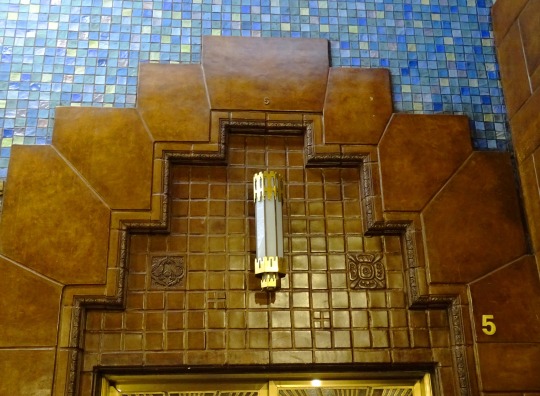



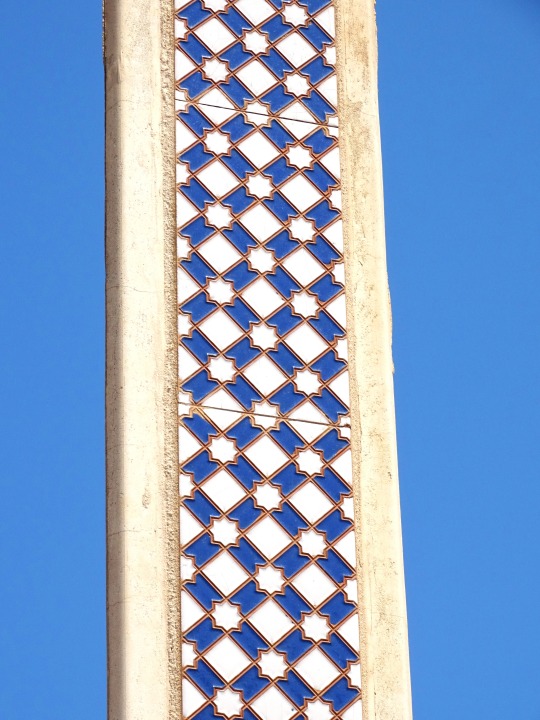
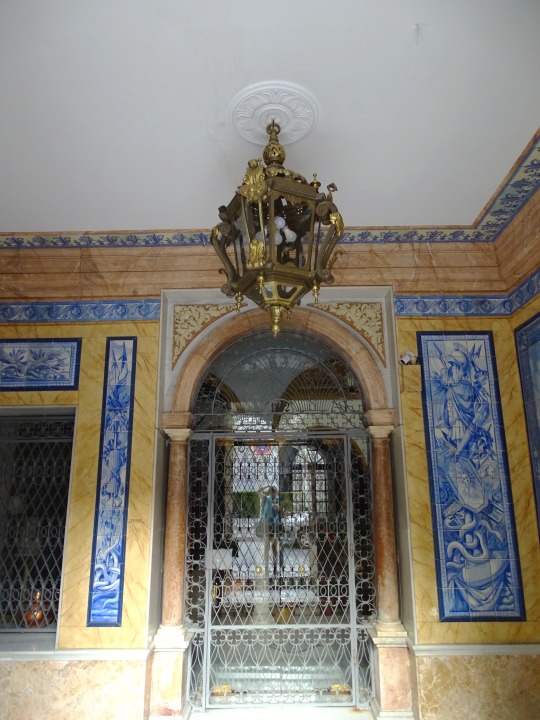



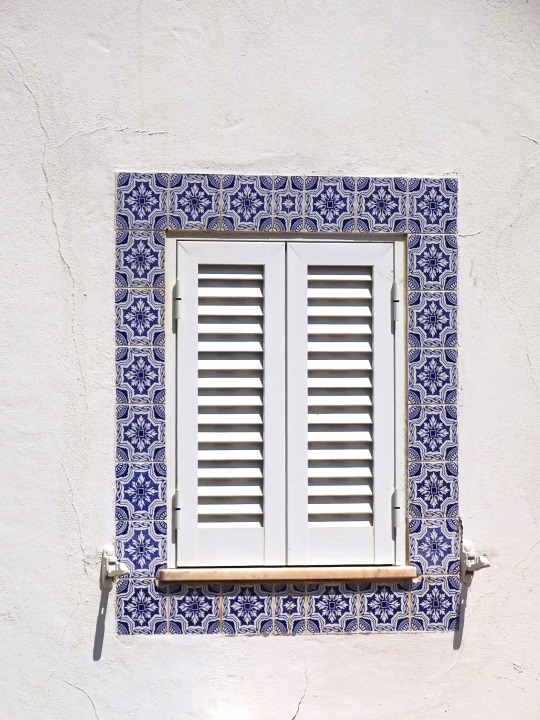
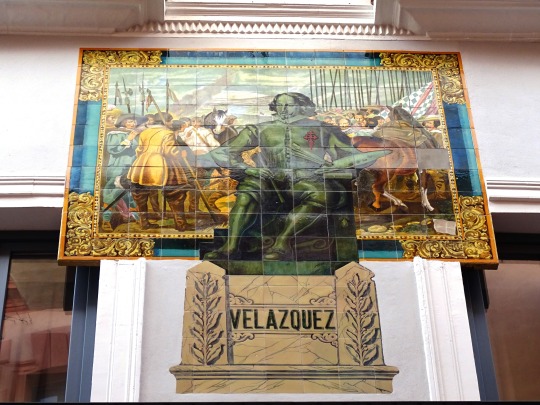








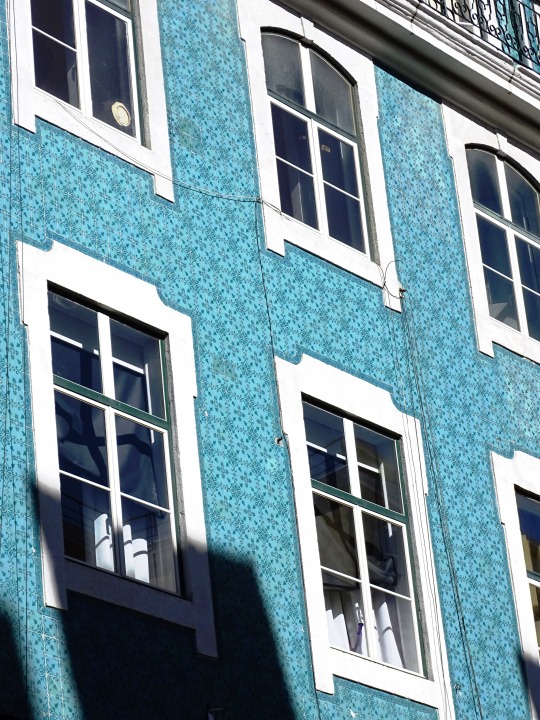
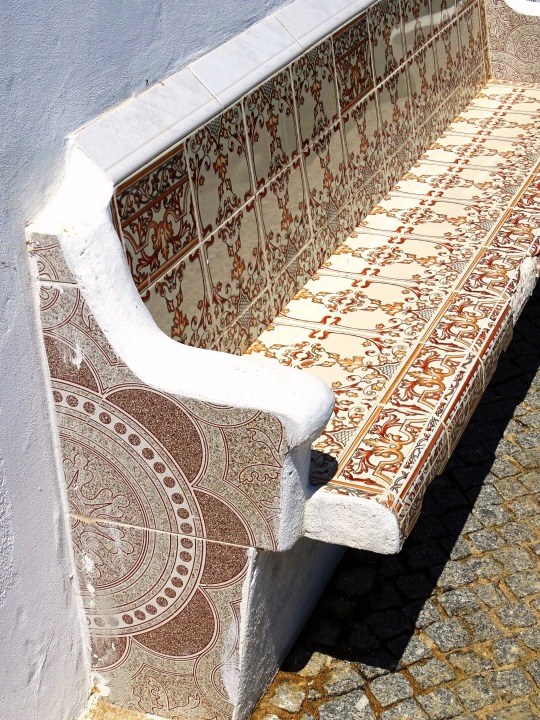
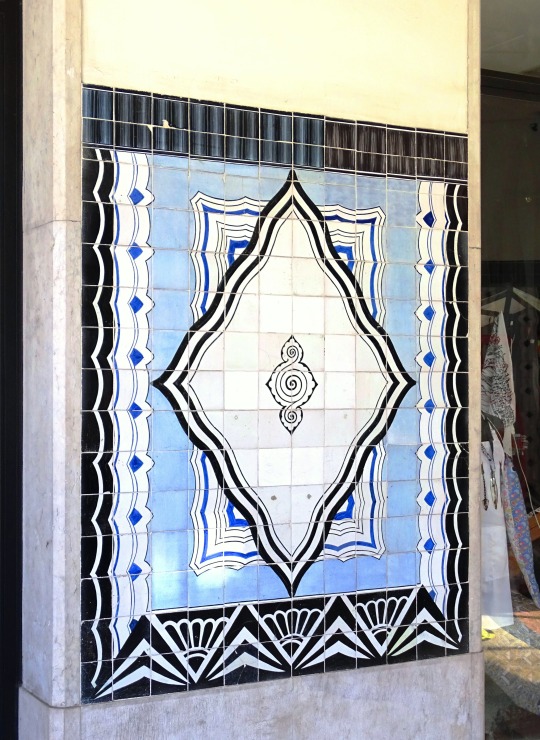

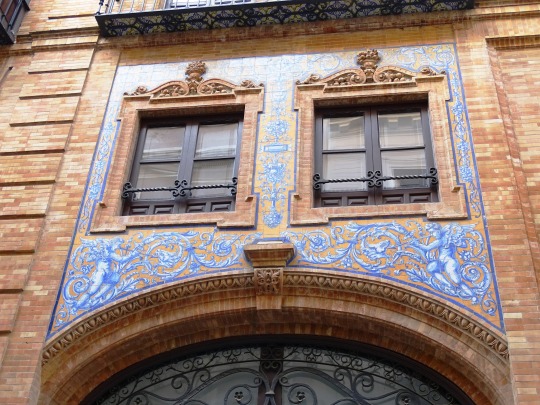

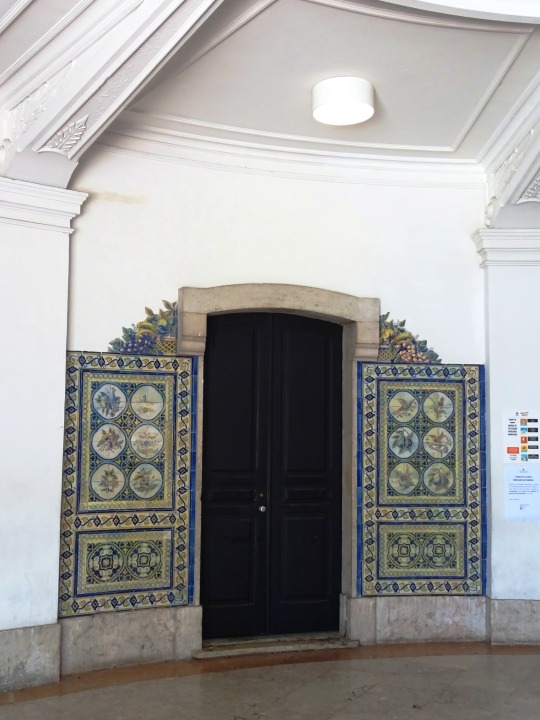




National Tile Day
National Tile Day is on February 23, and we are supercharged to enjoy the aesthetic pleasure of the superb craftsmanship and creativity of the tile industry. Did you know that tiles have existed for thousands of years? Yes, mostly ceramic, mosaic, and stone tiles, and they have evolved into the many varieties so many of us crave today.
History of National Tile Day
Tiles are timeless elements of architectural endeavors and design. Seeing them on the walls, floors, and roofs provides aesthetic pleasure, and they have become inseparable from architecture and designs in all spheres, both domestic and public.
More than that, tiles can be used for flooring all through the house. Kitchens, bathroom, toilet, sitting room; every room in the house can have tiles on the floor to provide a strong, durable, and beautiful flooring. There are many types of tiles, from ceramic, porcelain, and glass to marble, granite, and other natural stone tiles, and many others.
The use of tiles in history began in ancient Egypt several millennia back, and they were used for decorative purposes. They were mostly found in murals, mosaics, and various other designs. The Egyptians had already begun using blue brick tiles to decorate their homes around the fourth millennium B.C., and glazed brick tiles were common in Mesopotamia also, as found on the famous Ishtar Gate in Babylon, which was tiled and decorated with lions, bulls, and dragons. The Islamic empires are given credit for the spread of ceramic tiles as wall coverings, and then the Chinese via their access to the silk trade routes.
Today, tiles exist all over the world, gracing the walls and floors of millions of structures. They have evolved to different designs, patterns, and arrangements that are beautiful and pleasing to the sight, and National Tile Day exists as a moment to celebrate this wonderful, awe-inspiring craftsmanship.
National Tile Day timeline
3500 B.C.Tiles in Egypt
In Egyptian culture, they decorate their houses with blue brick tiles.
1500sPortuguese Heritage
Portugal incorporates the ceramic tile arts as an integral part of its cultural expression, influenced greatly by the Moorish influence of North Africa.
1956Tiling Company
The tile company Osiarte creates tiles used by artist Cândido Portinari to create the mural ‘As Quatro Estações,’ located in Rio de Janeiro.
2017National Tile Day
The biggest international tile and stone show in North America, Covering, initiates National Tile Day to draw attention to the importance of tiles in architecture and designs.
National Tile Day FAQs
Do tiles make the room cold?
Not necessarily. And there are specially made tiles that can regulate temperature, be it cold or hot.
What are the qualities of a good tile?
It should be without cracks, sturdy, be of regular shape and size, and should make a clear ringing sound when you strike it.
What is the difference between interior and exterior tiles?
There is no clear-cut difference, but exterior tile should have grit that provides traction when it gets wet, and should be slip-resistant and frost-proof.
How To Celebrate National Tile Day
Browse through various tile designs
Pick out designs
Share your experience
Surf the net and browse the myriad tile arrangements and designs up there, feeding yourself on the aesthetic pleasures. You will find awe-inspiring craftsmanship that will blow your mind.
This is a time to pick out tile designs for your apartment, dream house, or building. You can also research the prices of the tiles, and what it would take to afford them in your apartment.
Talk to your friends and families on social media and around about tiles, their versatility, and why you love them. You can do this with the tag #NationalTileDay on Instagram, Twitter, Facebook, and other social media platforms.
5 Fun Facts About Tiles
It began in Egypt
The Arabs spread It
Spick and span
One million tiles
Freezing cold
The use of tiles began in Egypt before spreading to other parts of the world.
The Arabs were the ones who spread the use of tiles into Europe, where it soon gained ground.
A mixture of water and vinegar is a great and inexpensive cleaning solution for tiles.
More than one million tiles were imported from Sweden to cover the roof of the Sydney Opera House in Australia.
Porcelain tiles are best-suited to freezing weather conditions because of their density.
Why We Love National Tile Day
A time to appreciate tiles
Tiles are calming
They serve as a protective surface
What better day is there to appreciate the great craftsmanship behind tiles than this? This day affords us the opportunity to enjoy the beauty of tiles in their different facets.
Tiles can create a warm atmosphere, which adds to the feel of a home. This makes the home more enjoyable and the ambiance cozy.
Tiles protect surfaces in the house, and the building itself, as a shield against water, heat, and other things that can destroy it. It also protects the floor from dust and can last a lifetime.
Source
#Azulejo#Albufeira#Portugal#Sevilla#Spain#España#façade#architecture#cityscape#travel#vacation#summer 2022#summer 2021#tourist attraction#Art Deco#bench#Mojácar#National Tile Day#23 February#NationalTileDay#exterior#street scene#original photography#landmark#Vancouver#Canada#Denver#Alamosa#USA#Chicago
8 notes
·
View notes